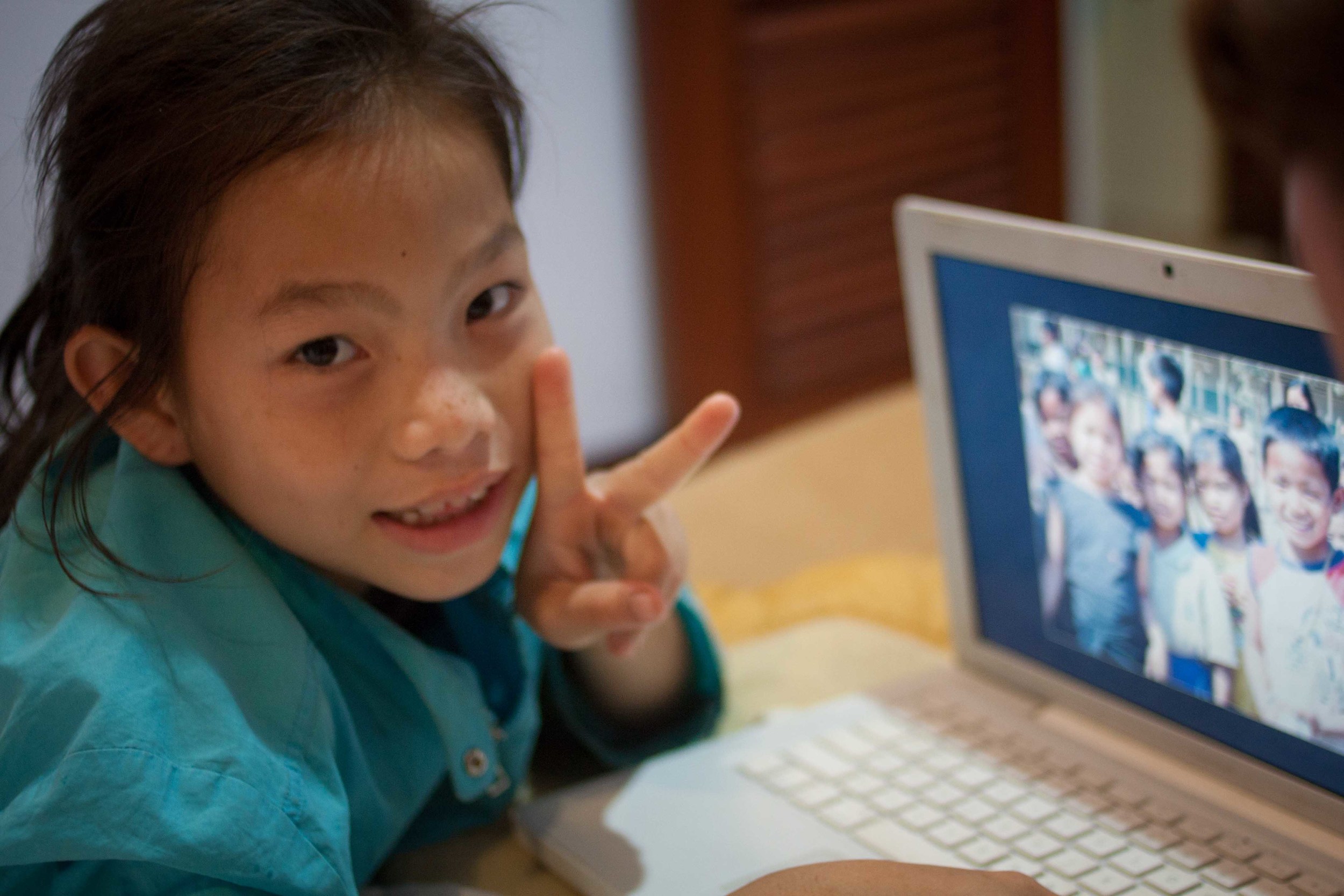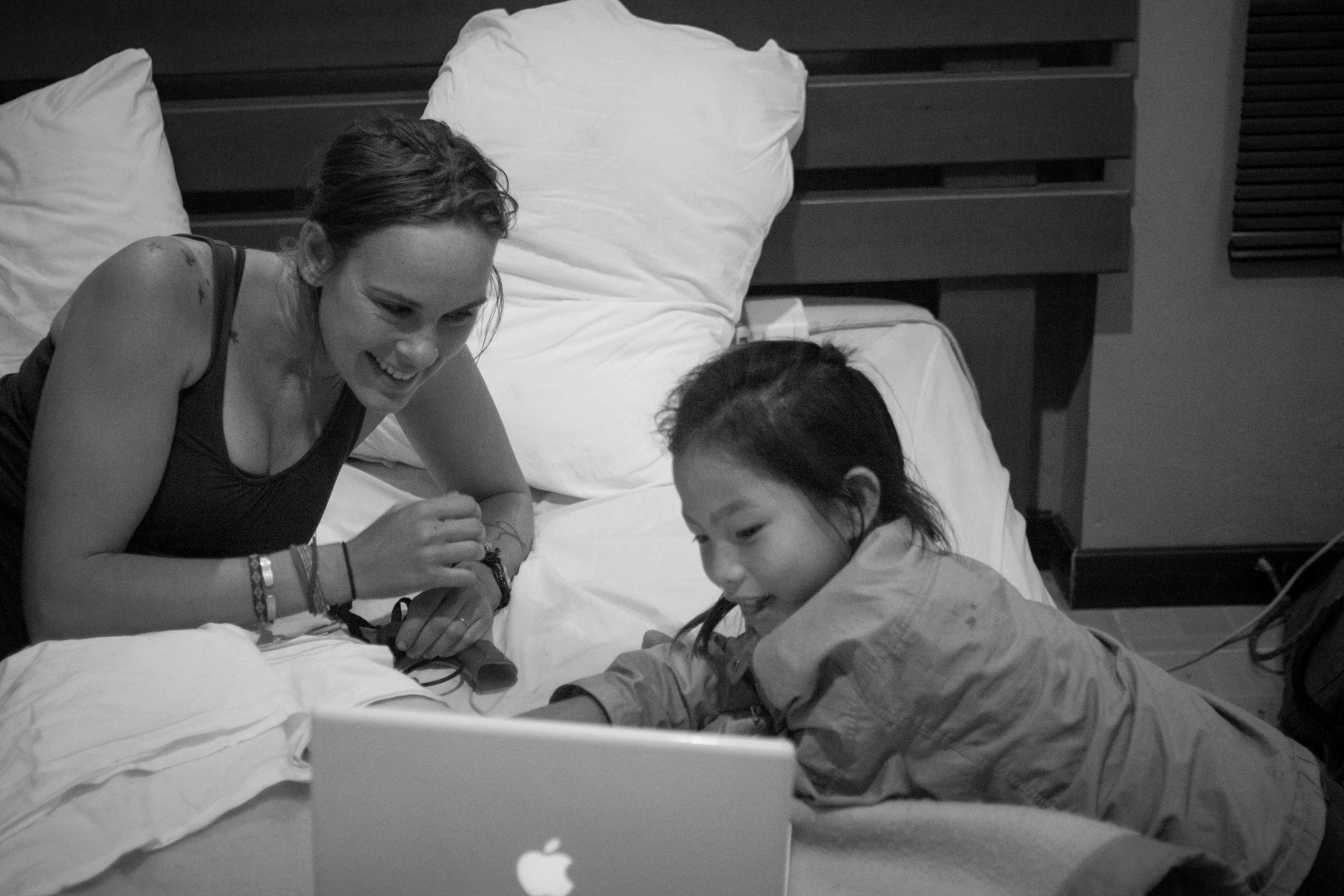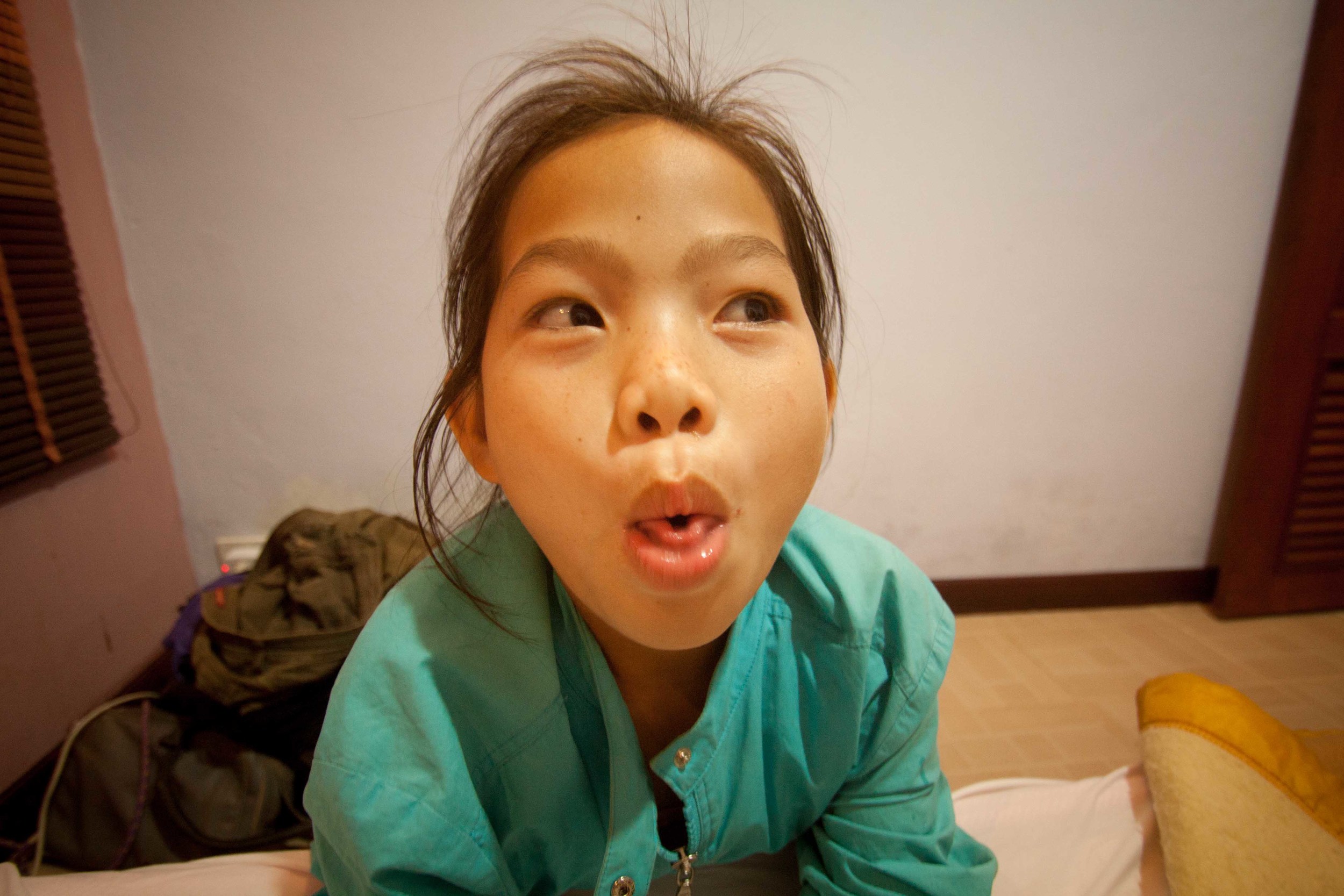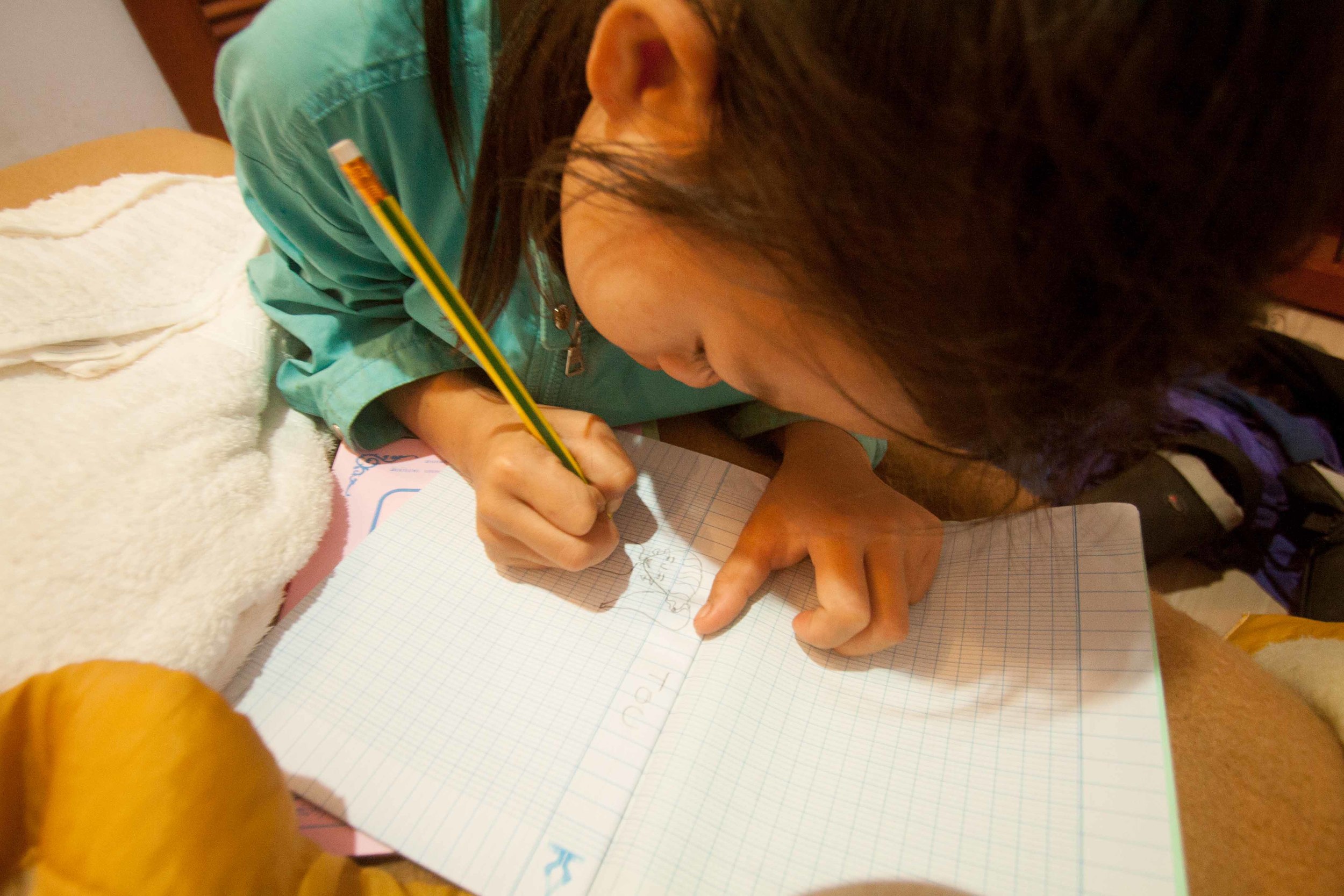We leave our cozy bungalow to hit the road which is a little worse than the day before. It's rocky and bumpy, but with none of the “bull dust” that we had experienced on other dirt roads. We don't have far to go so we take it slow, stopping often for brakes and the many photo opportunities that are everywhere.
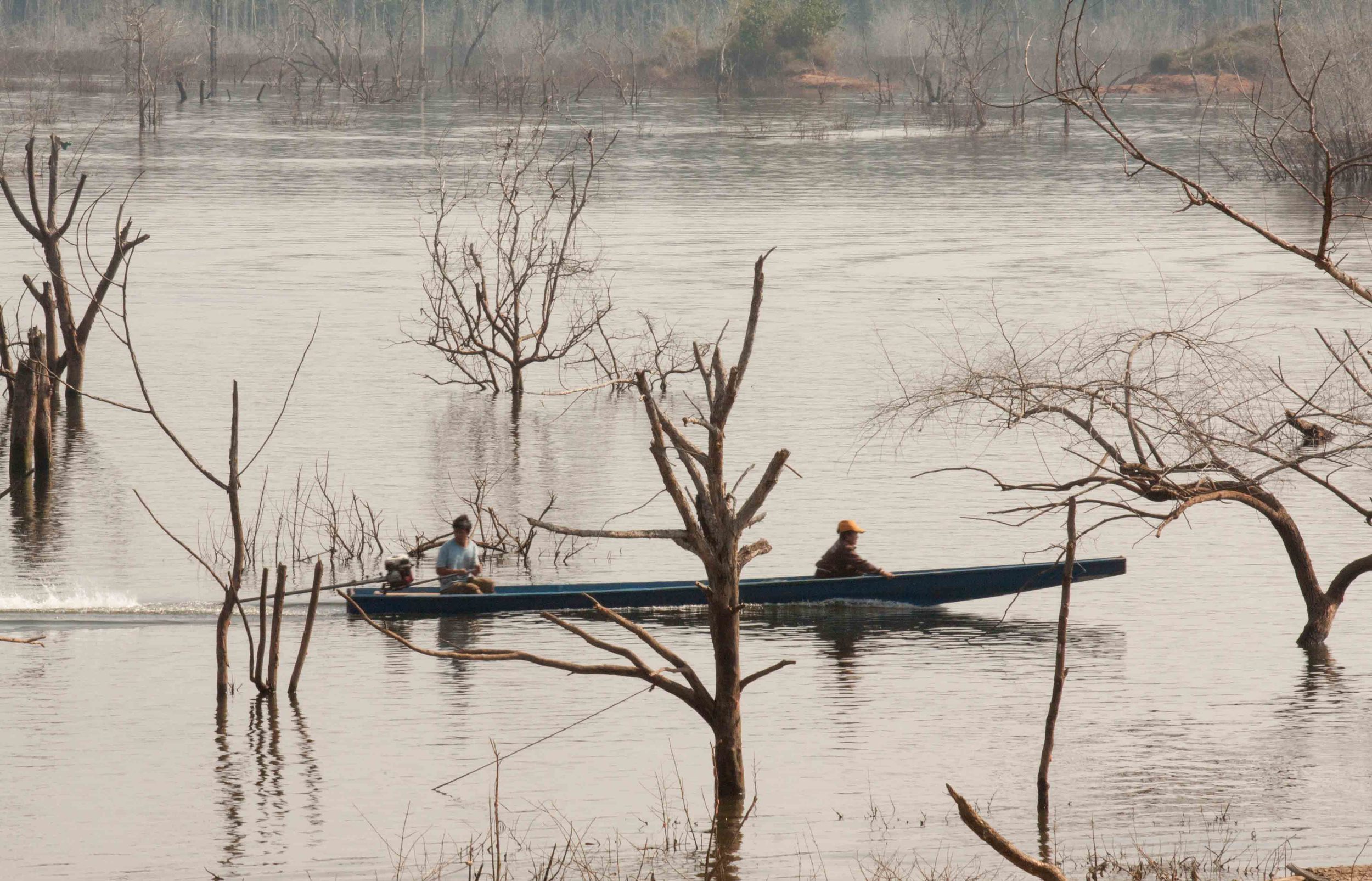
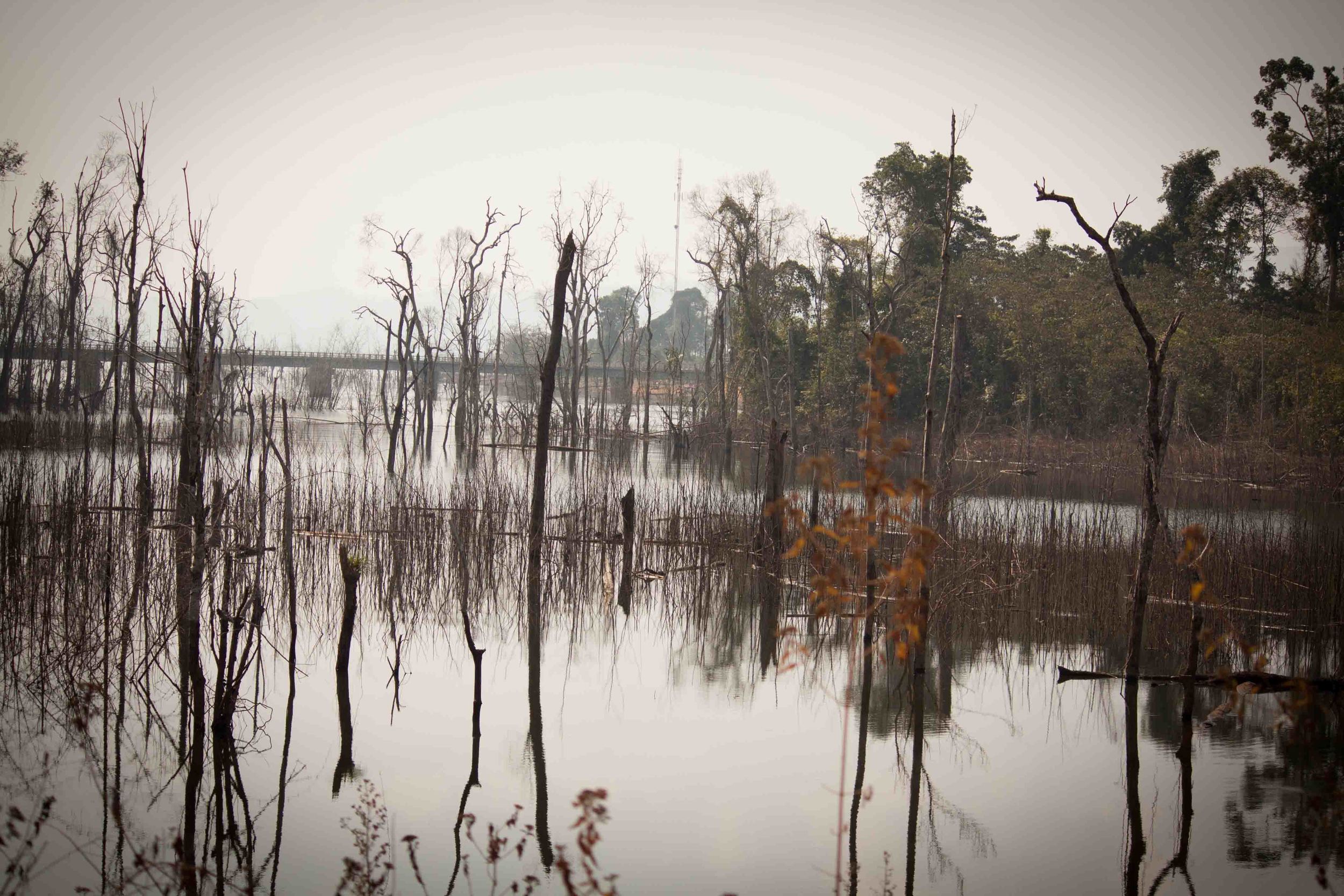
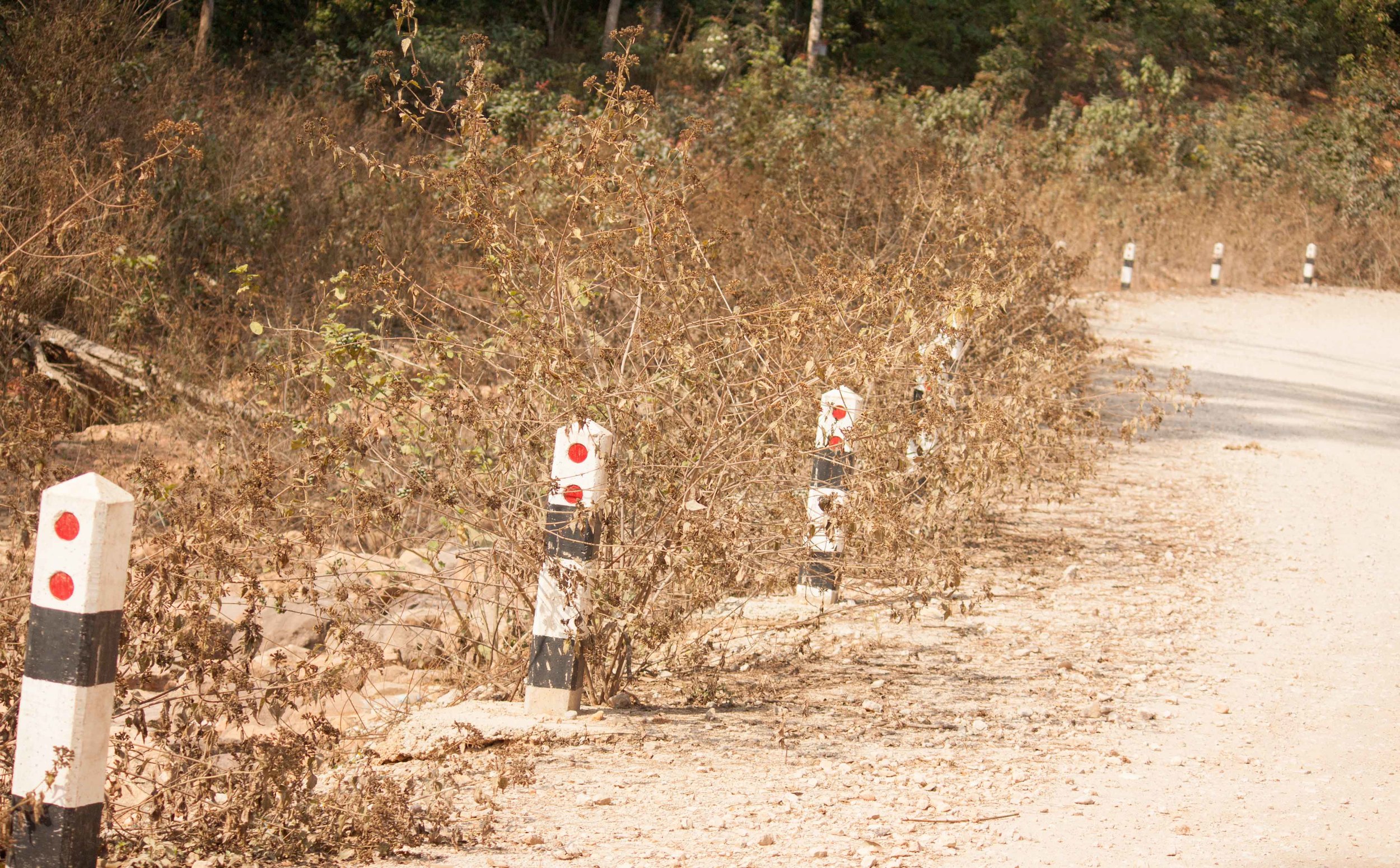
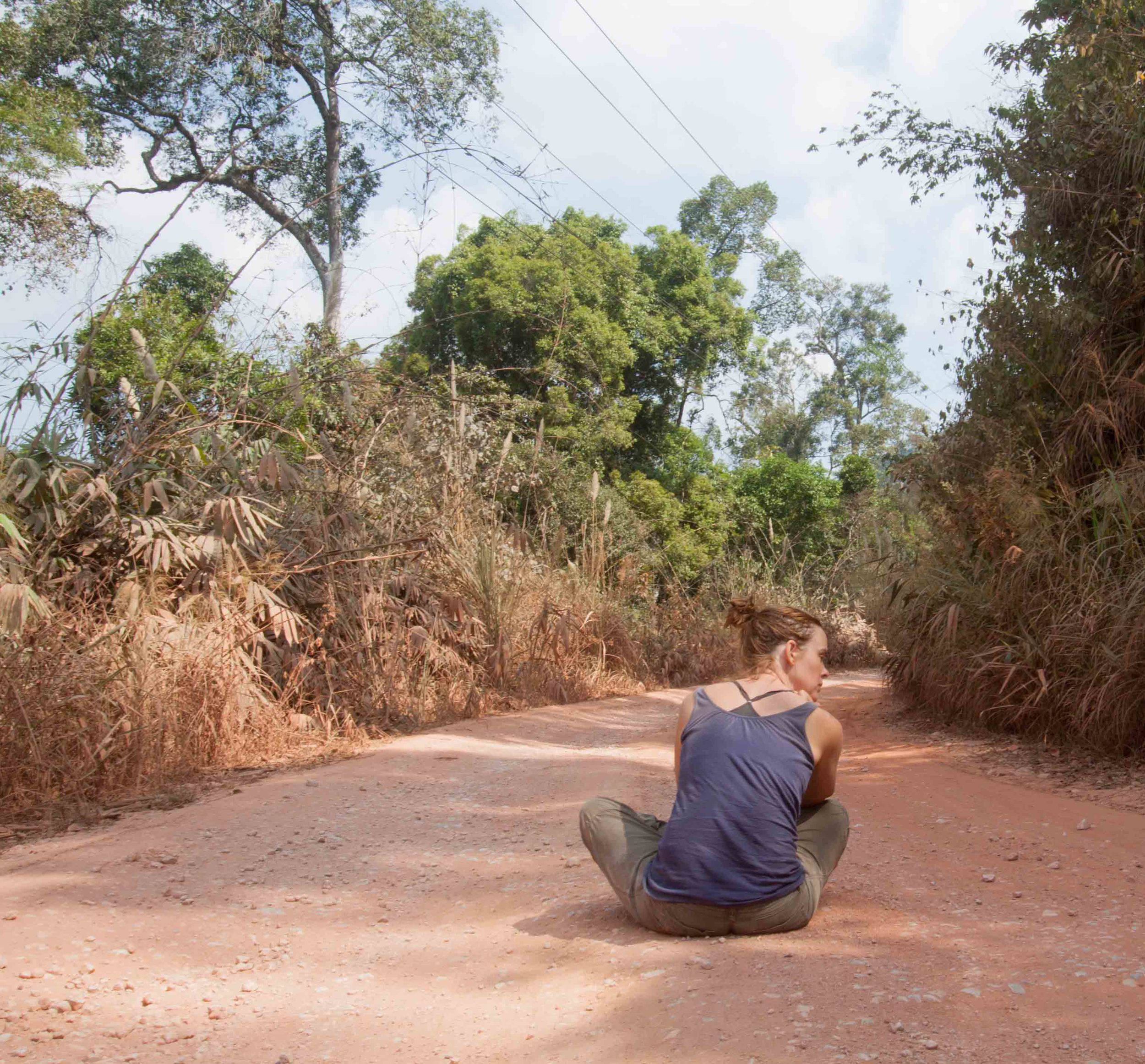
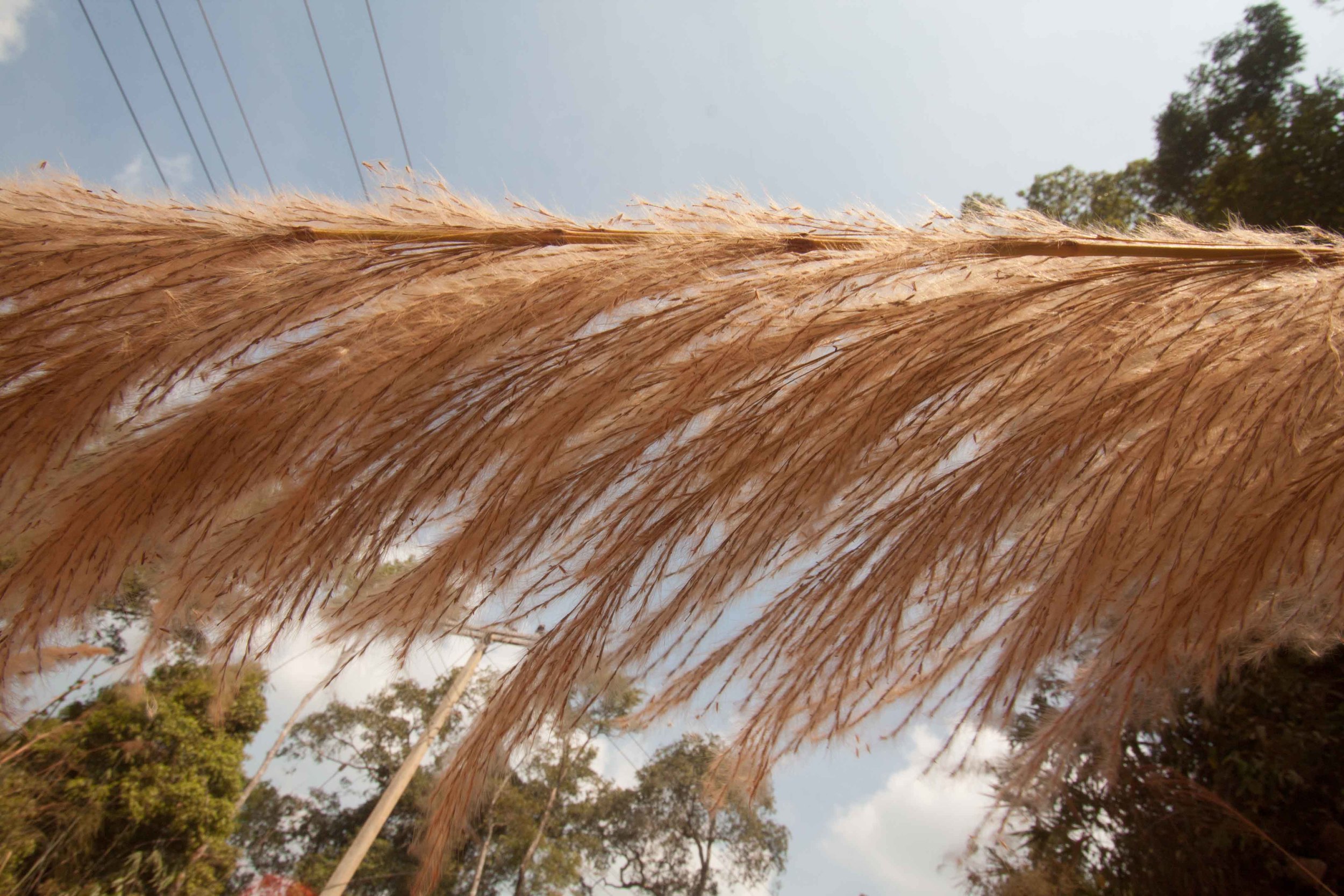
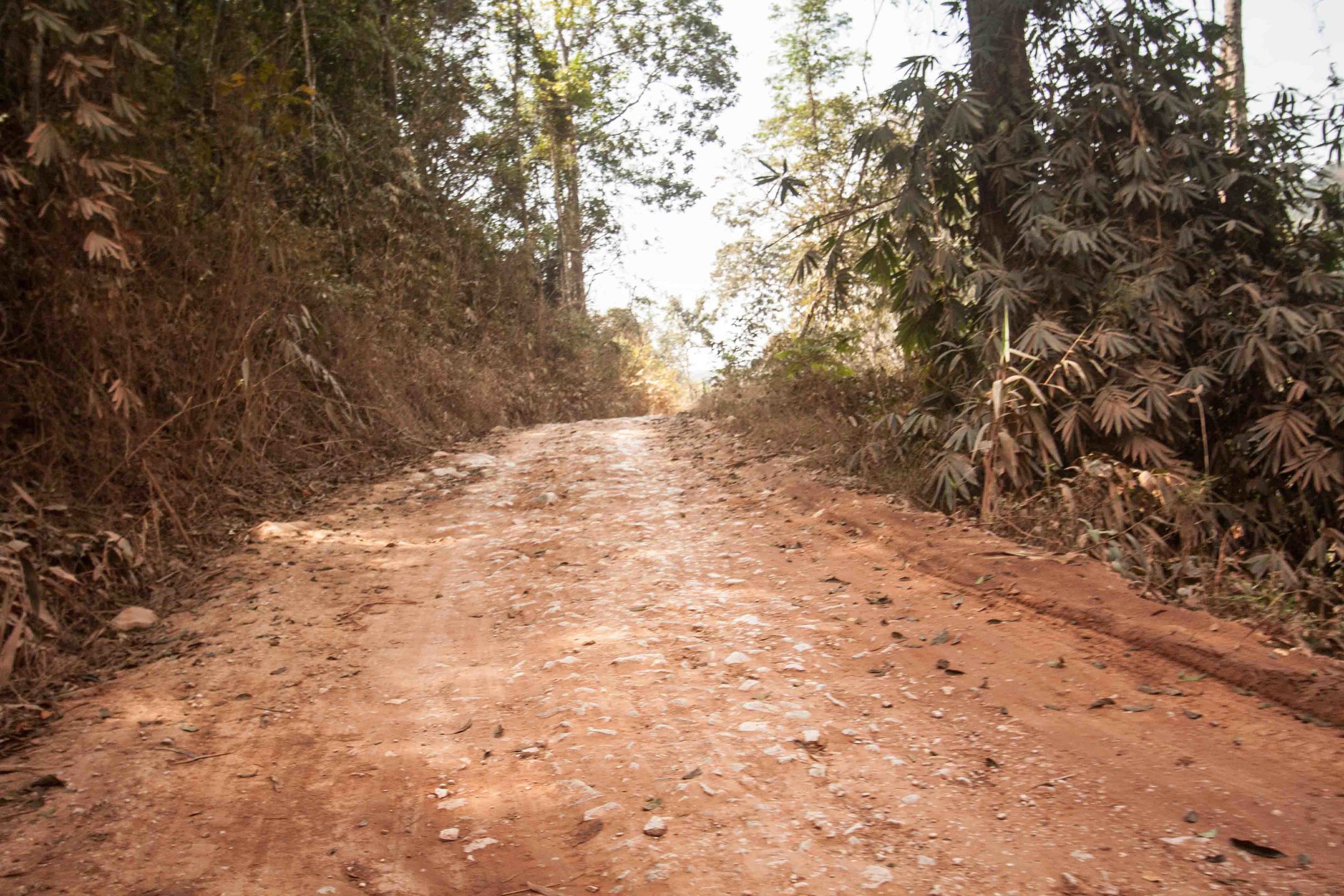
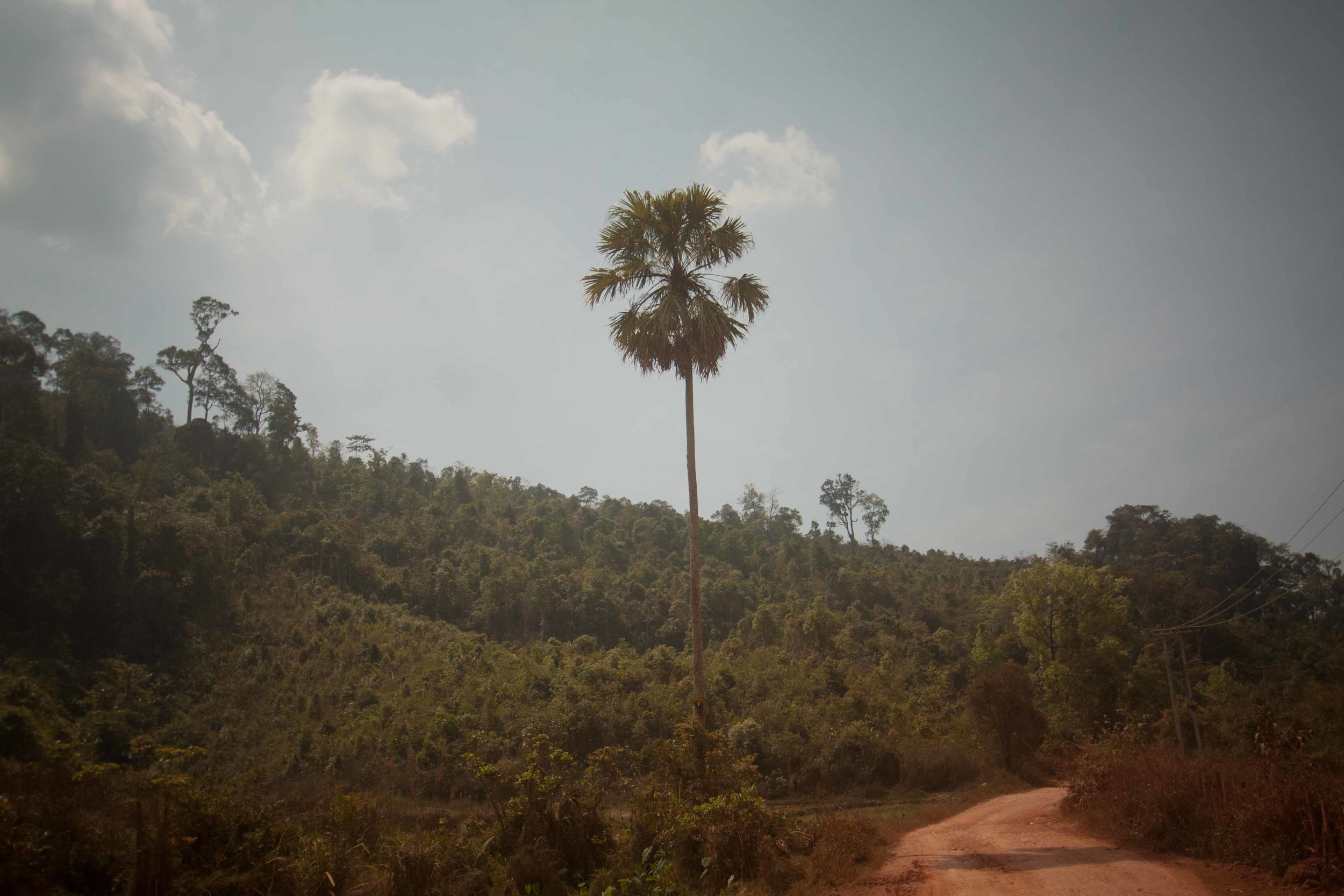
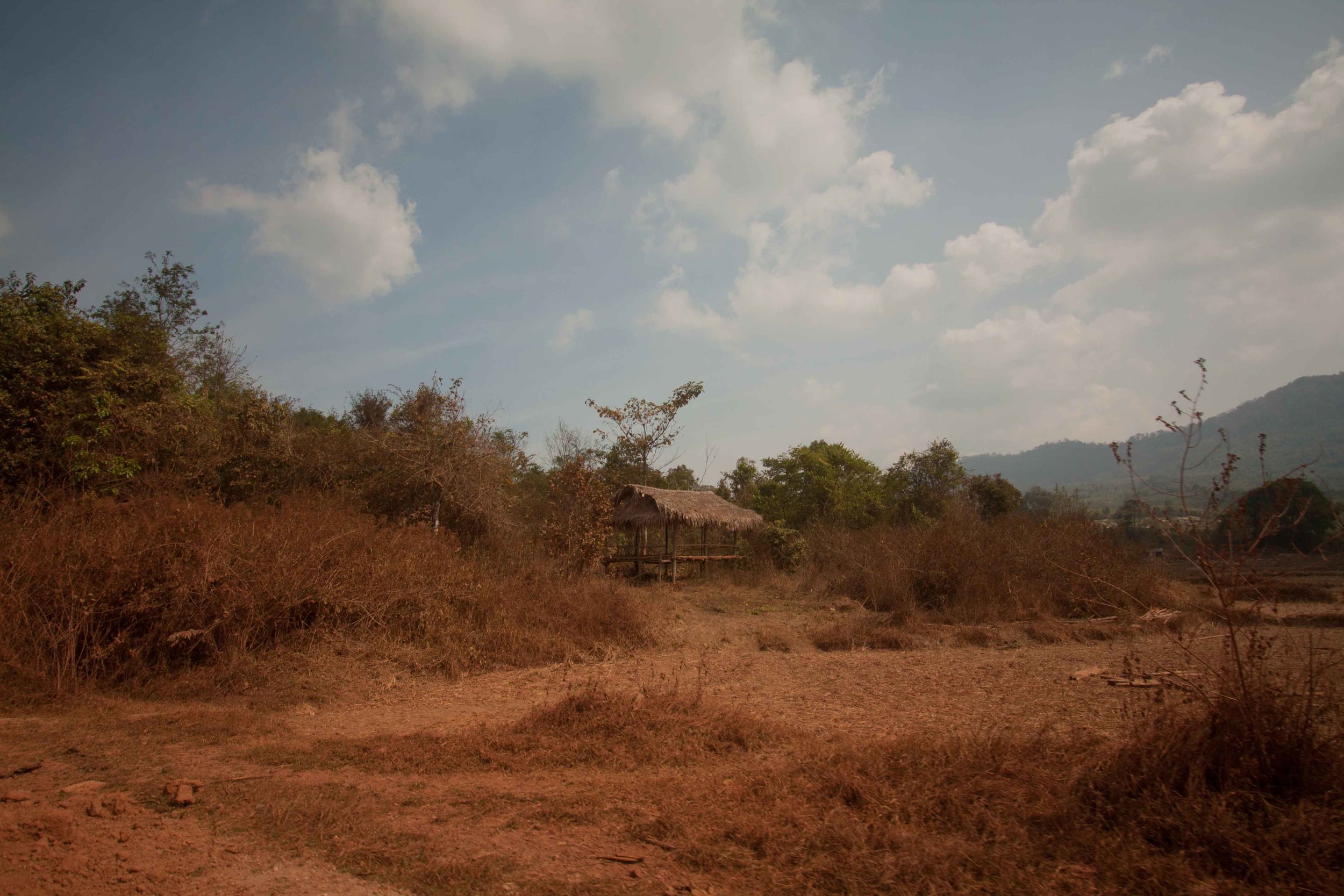

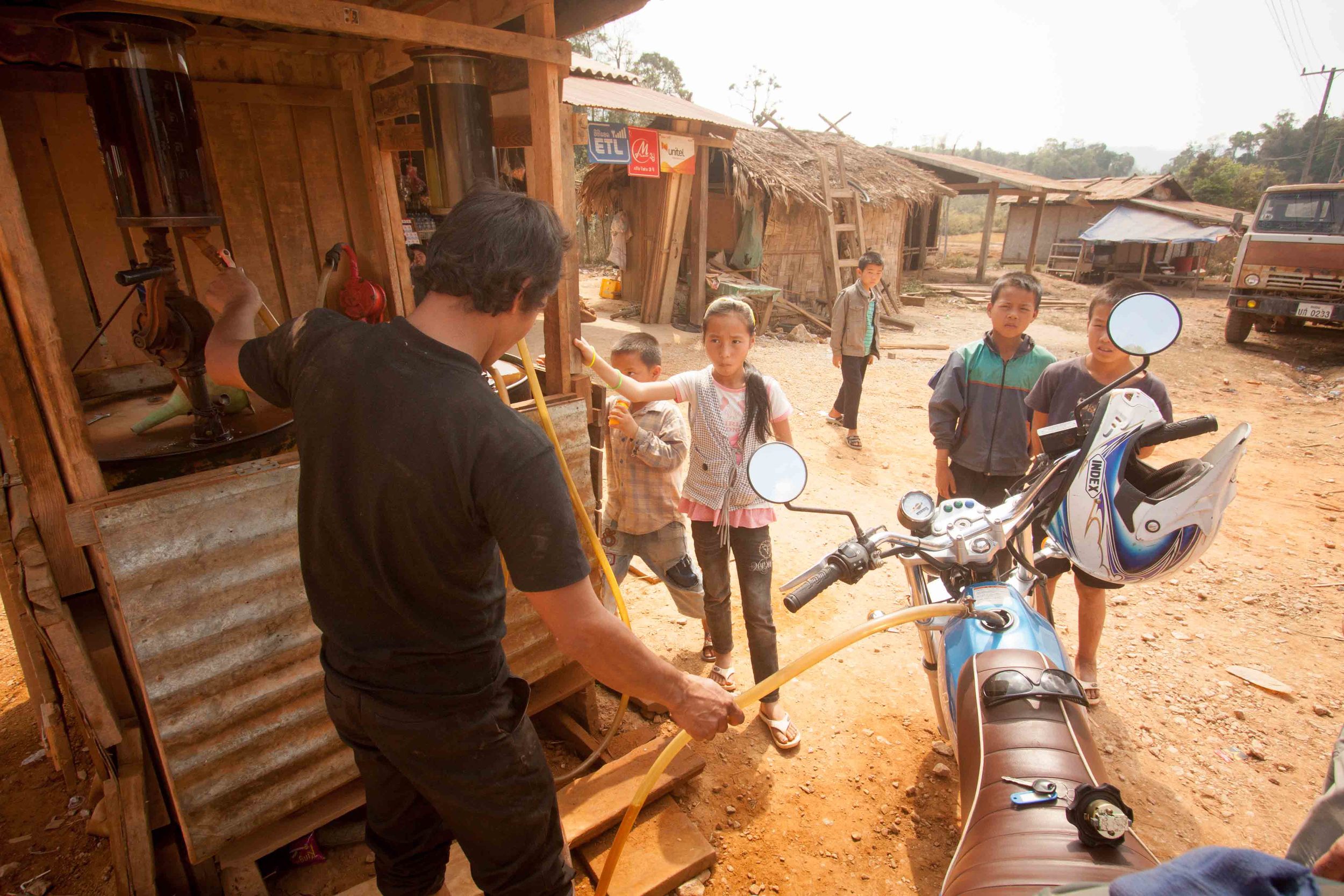
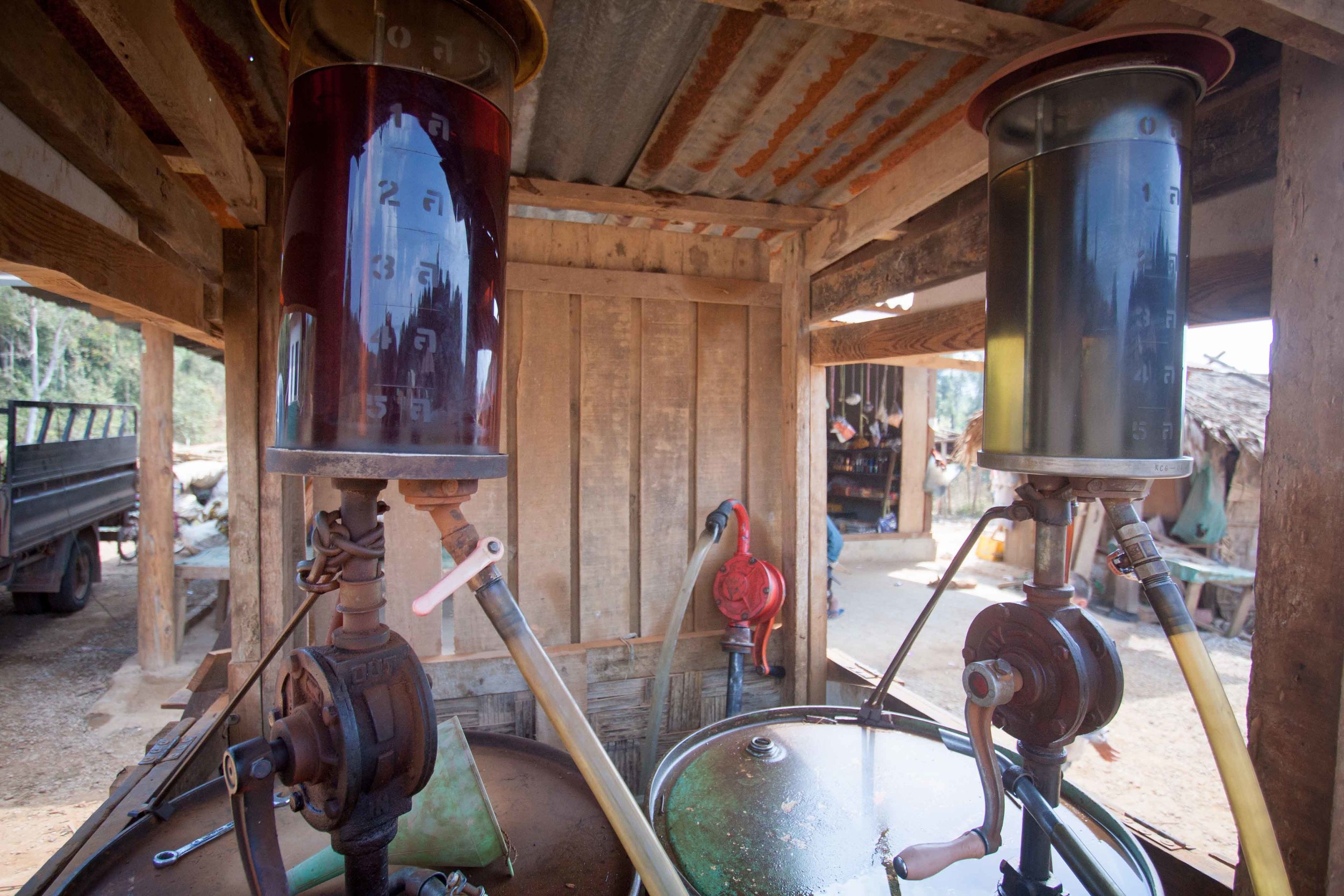

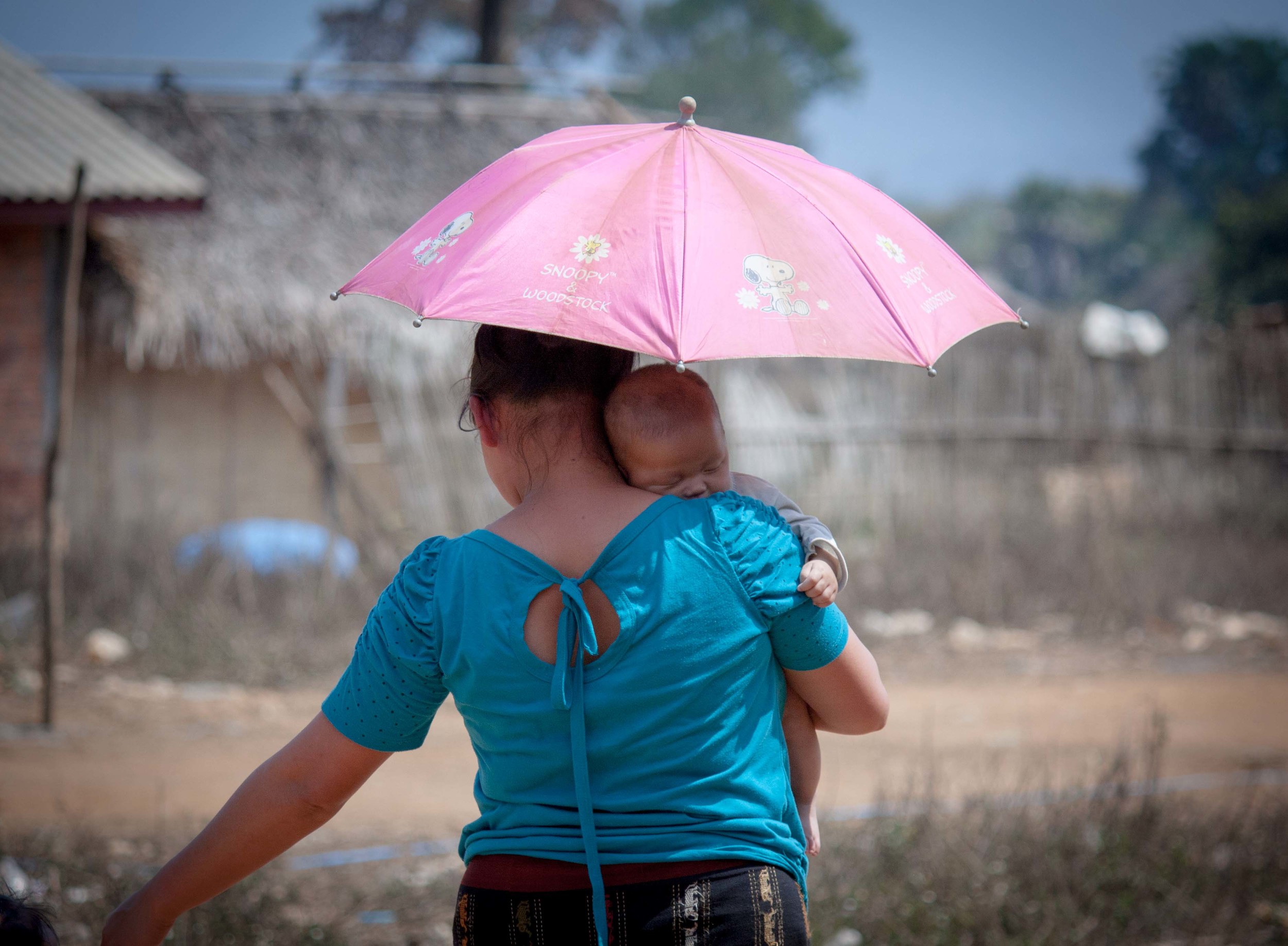
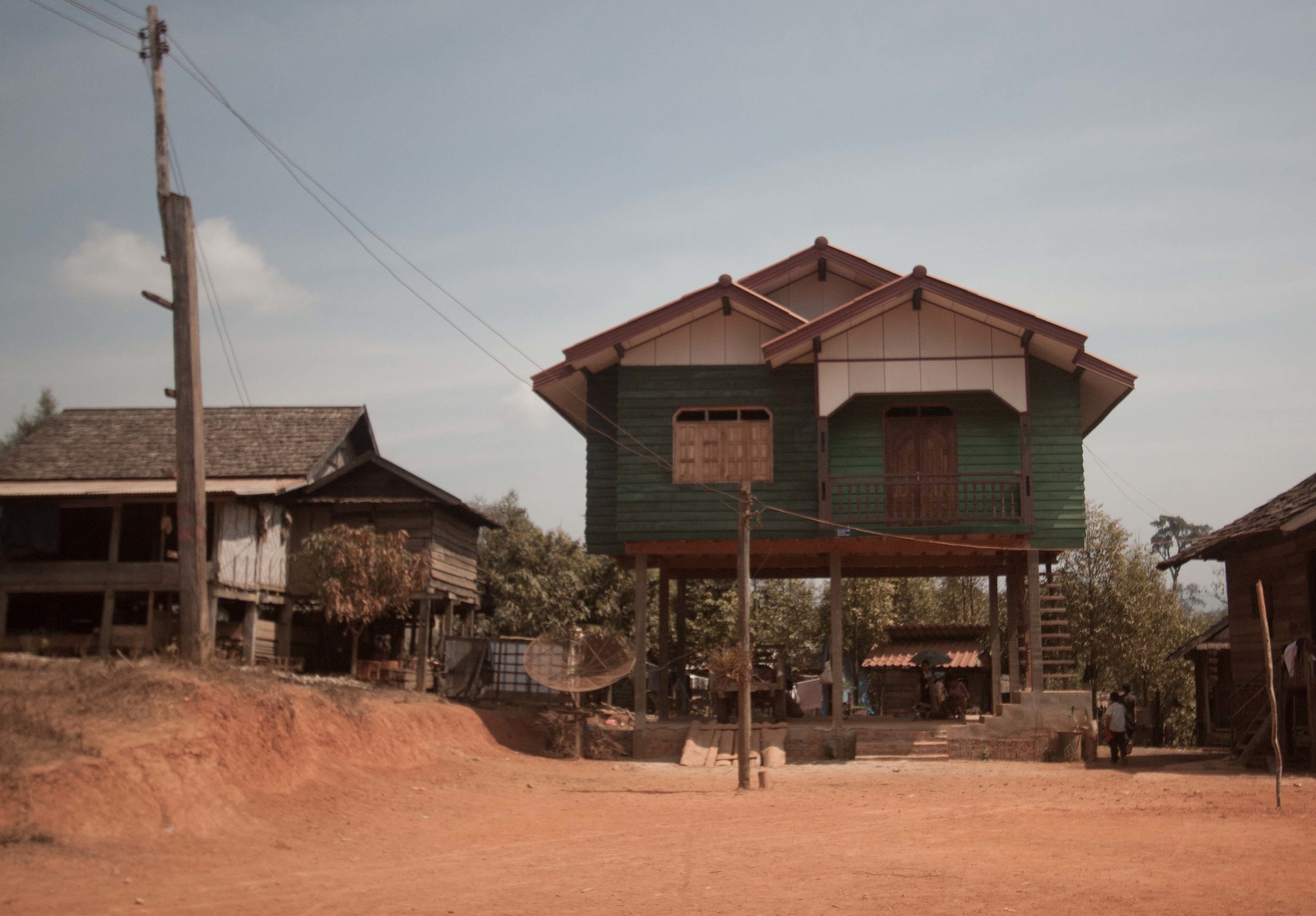
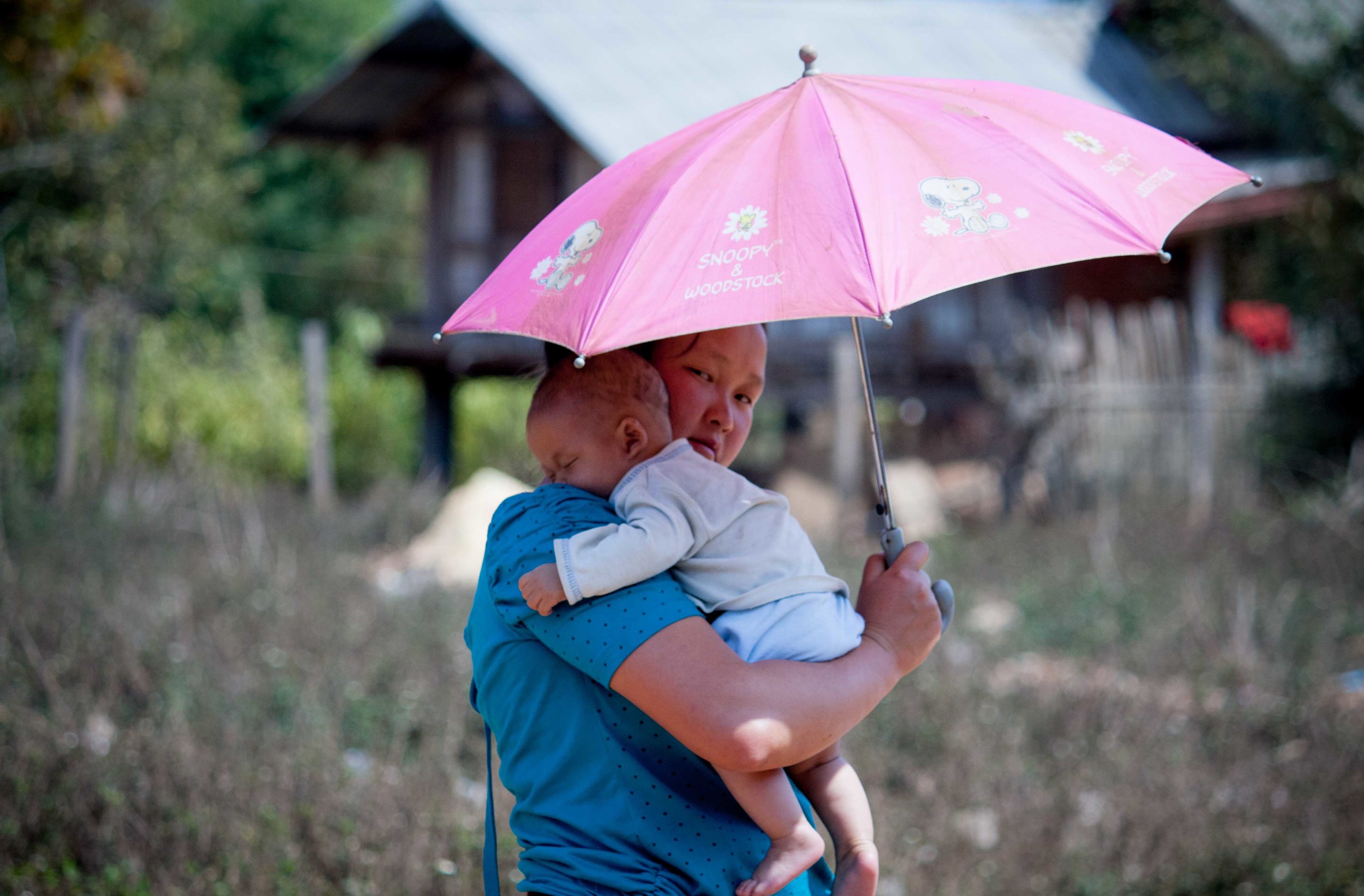
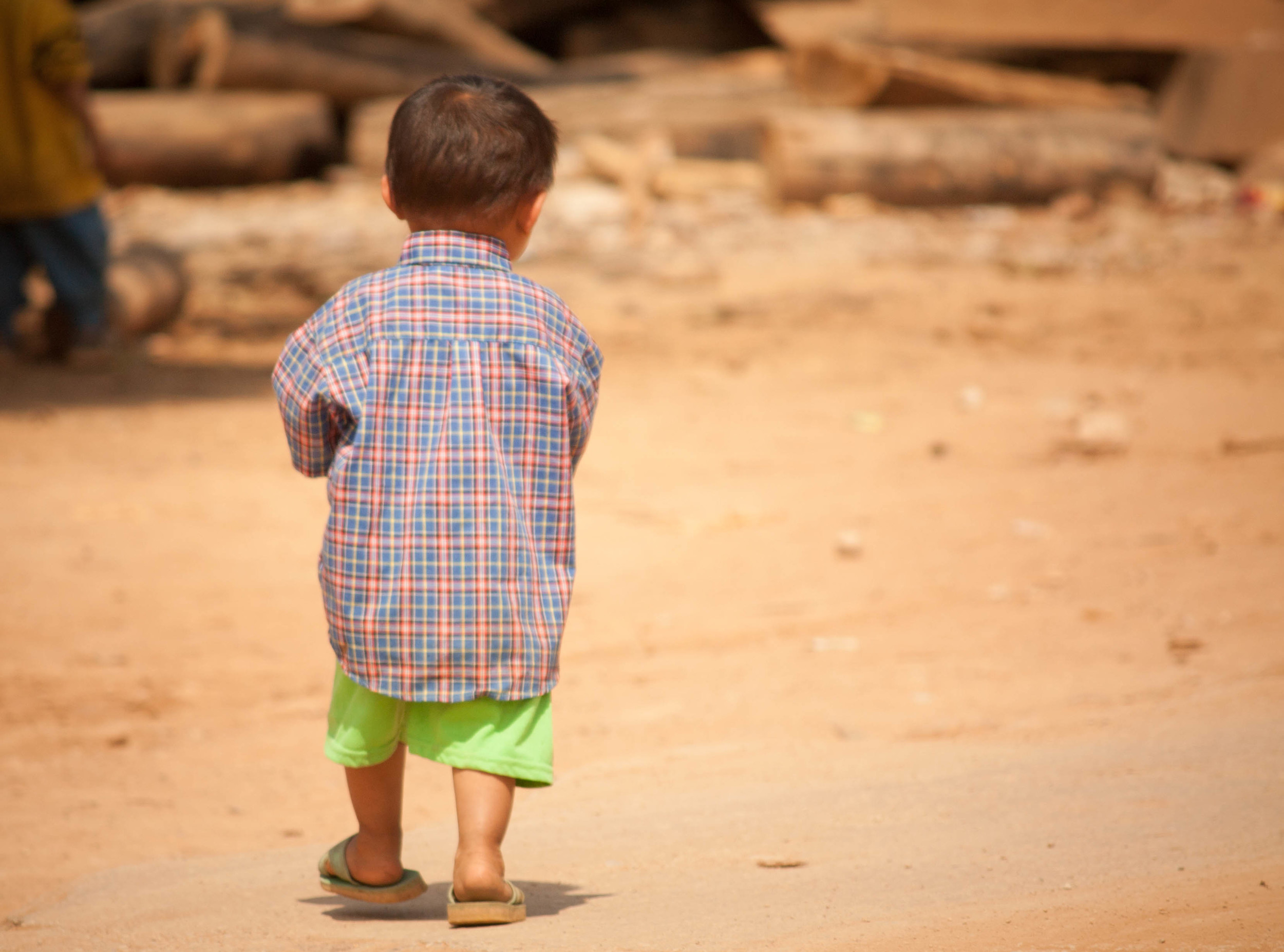
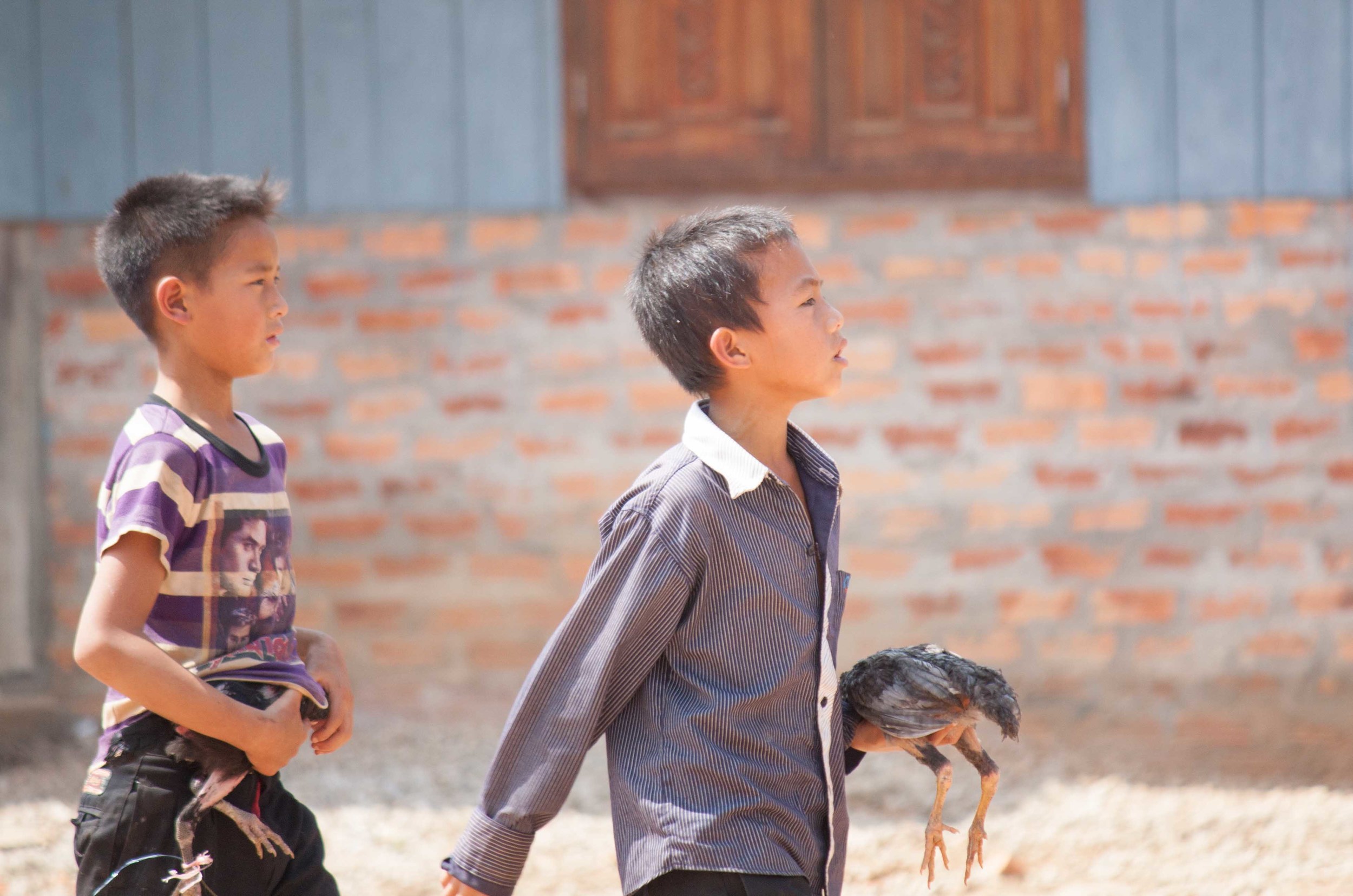
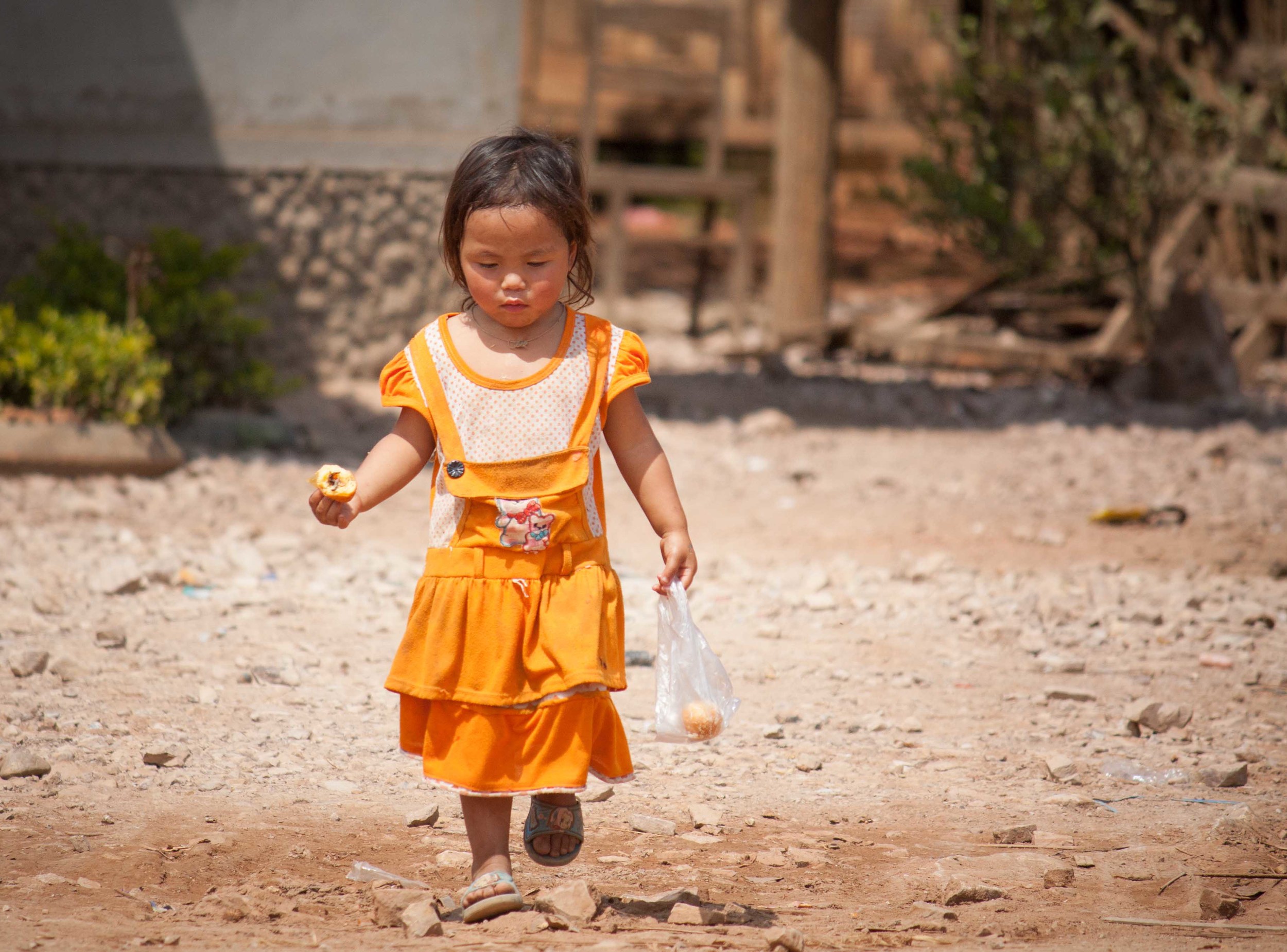
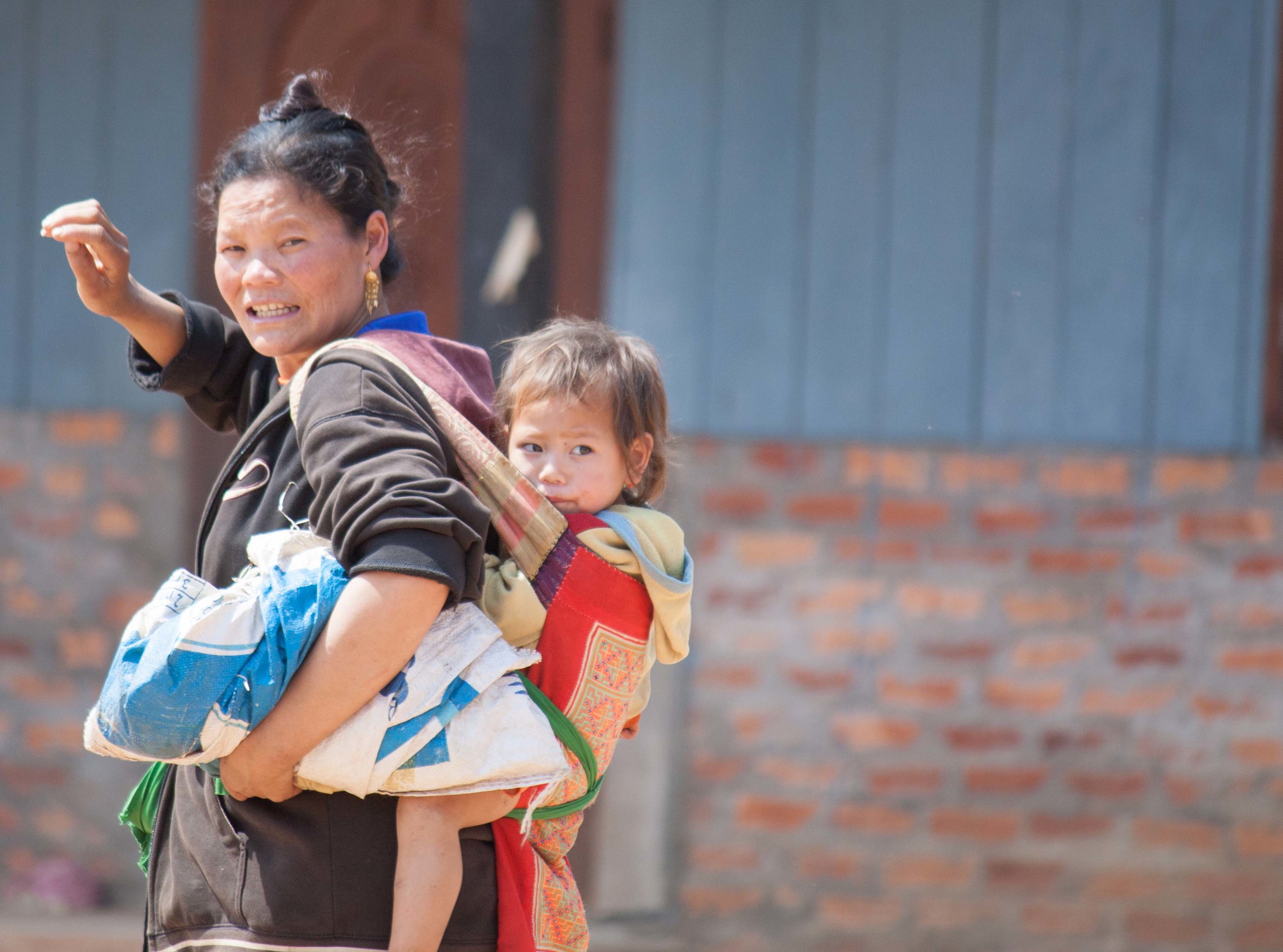
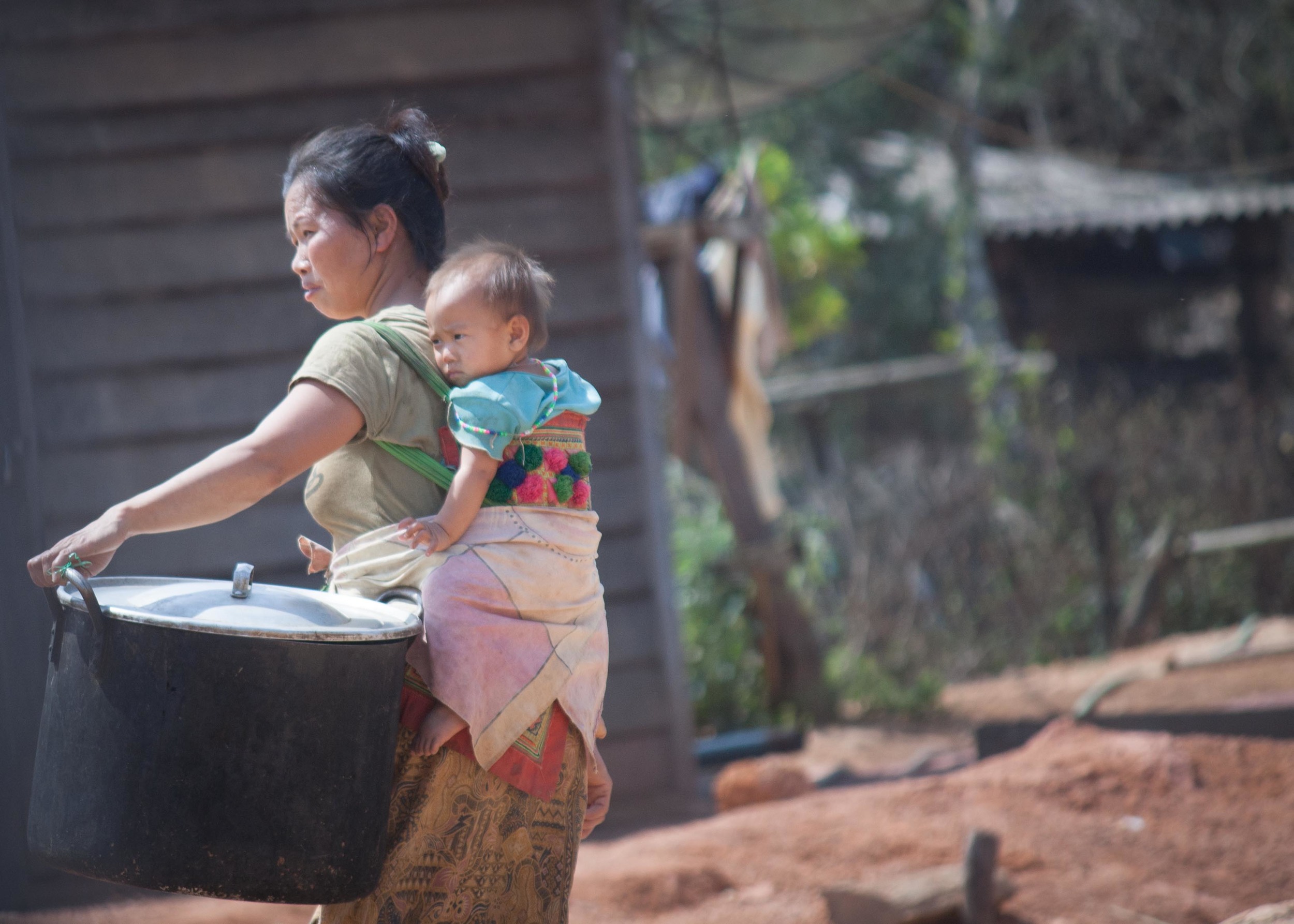

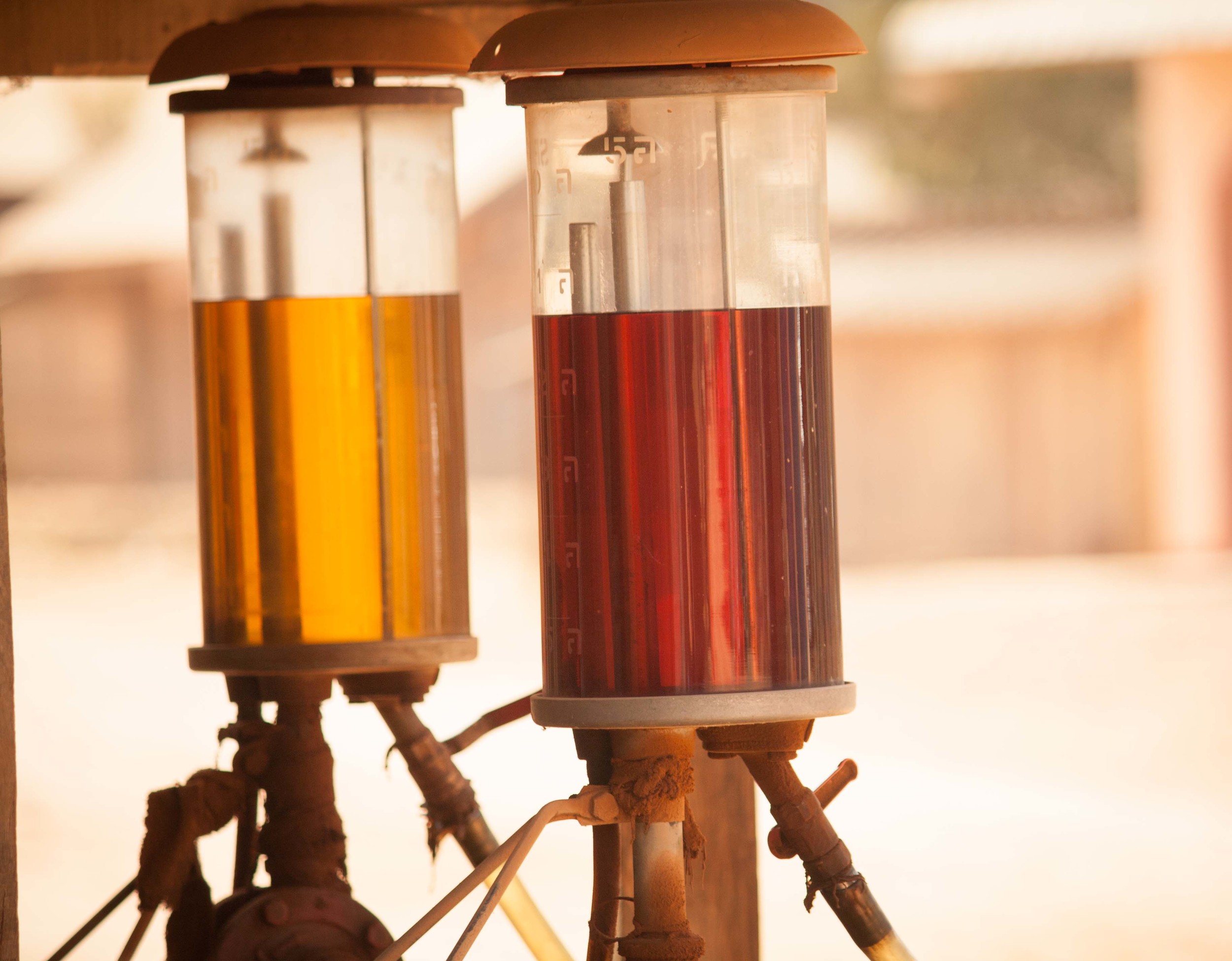
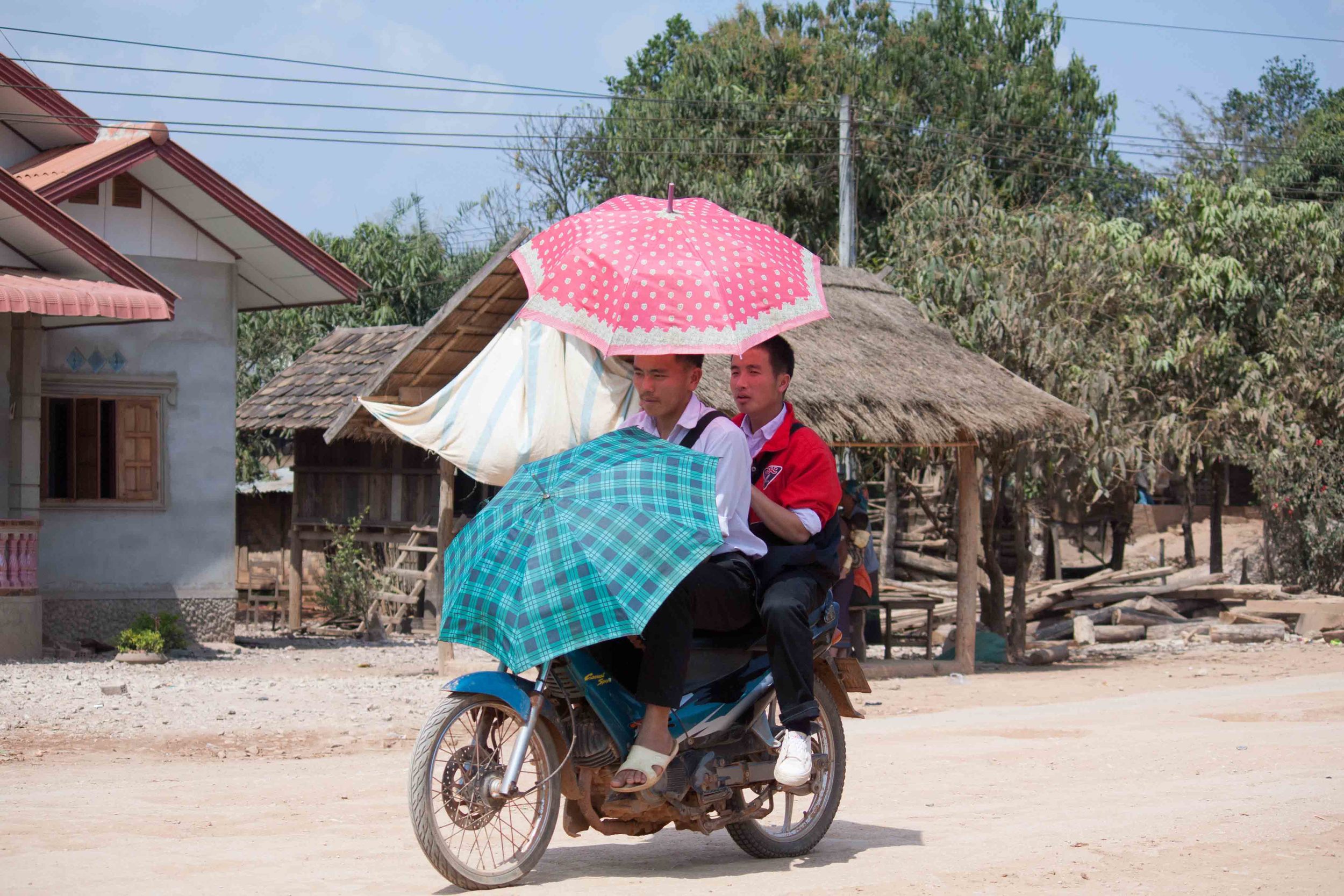
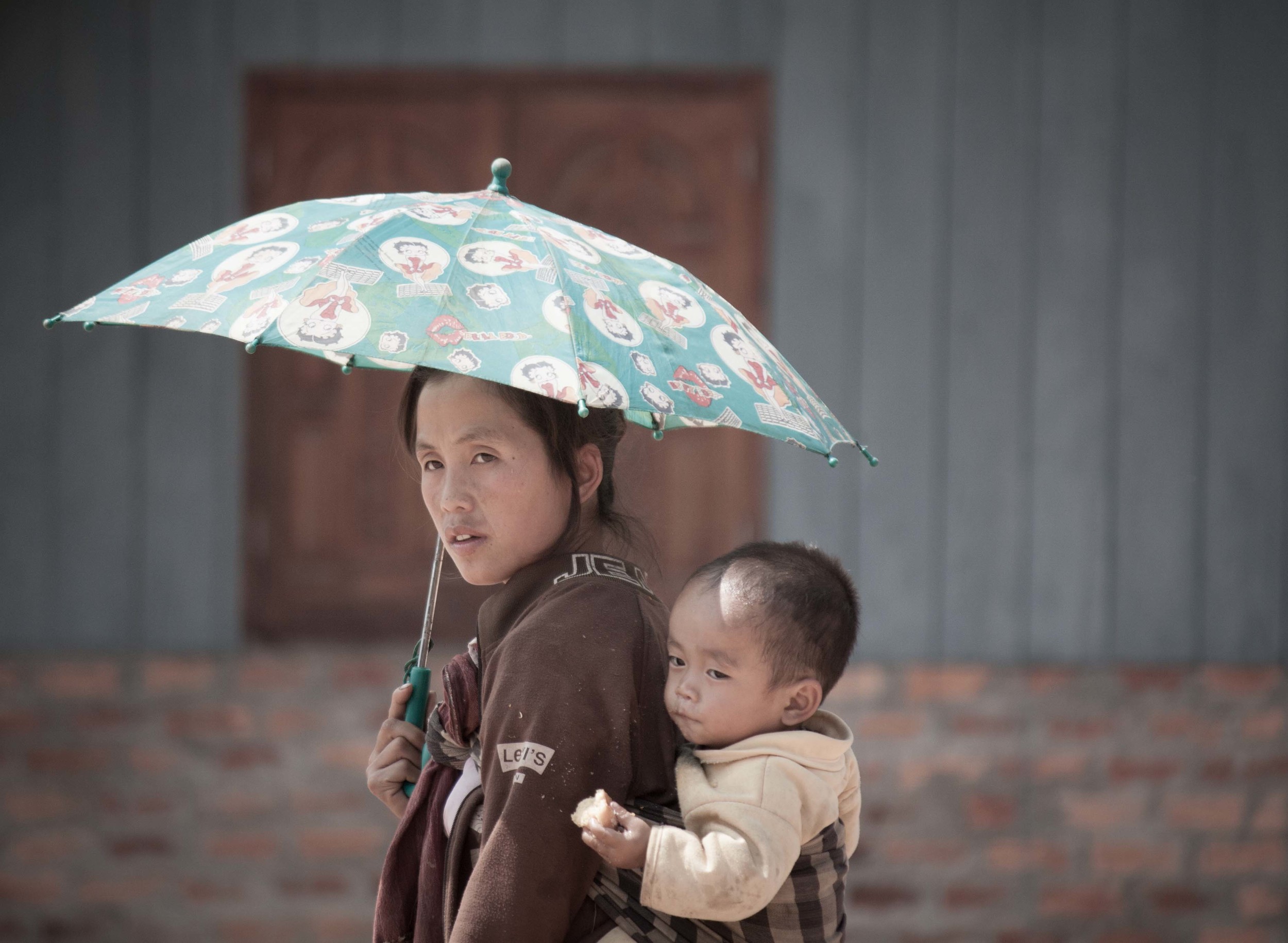
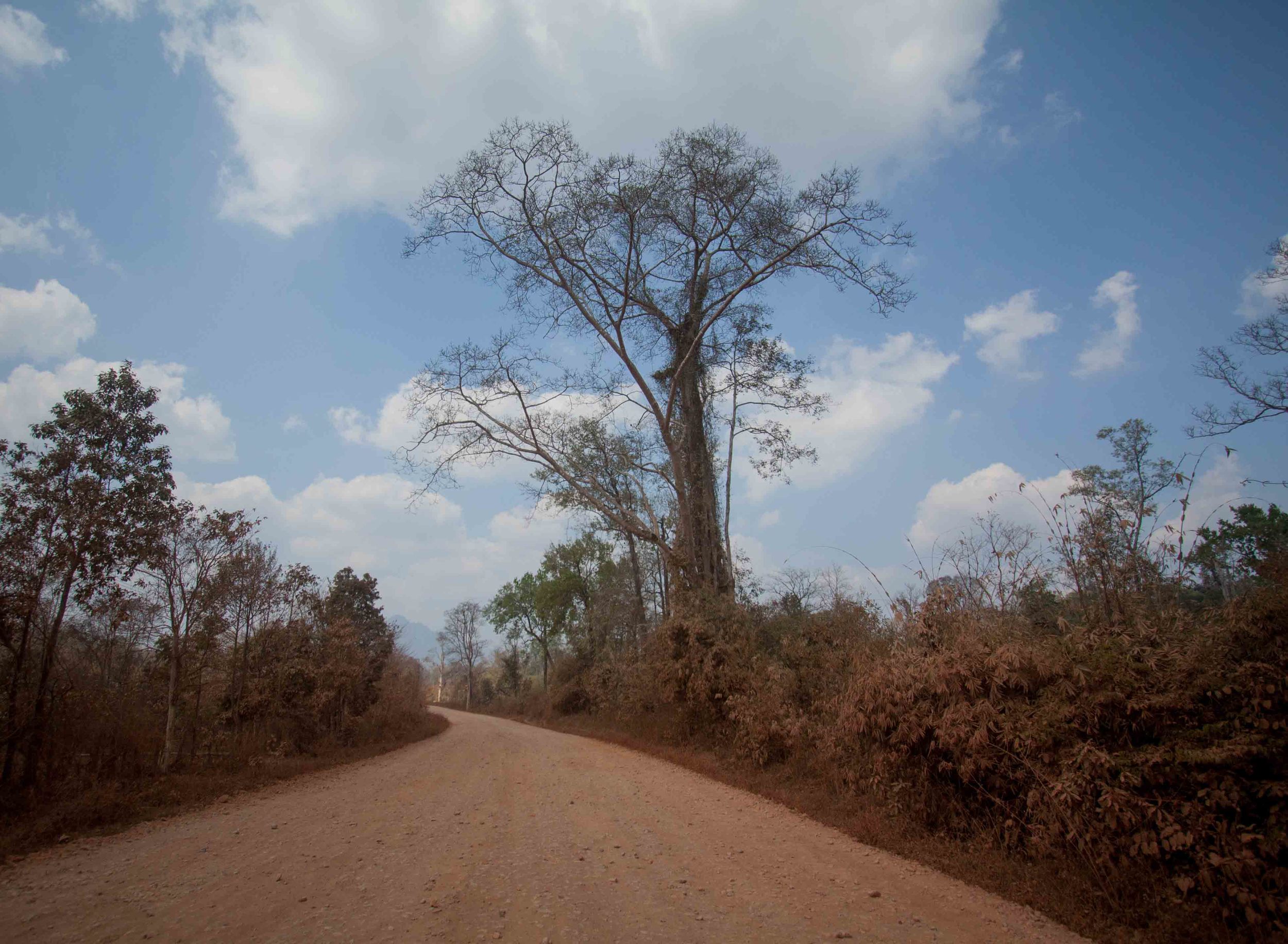
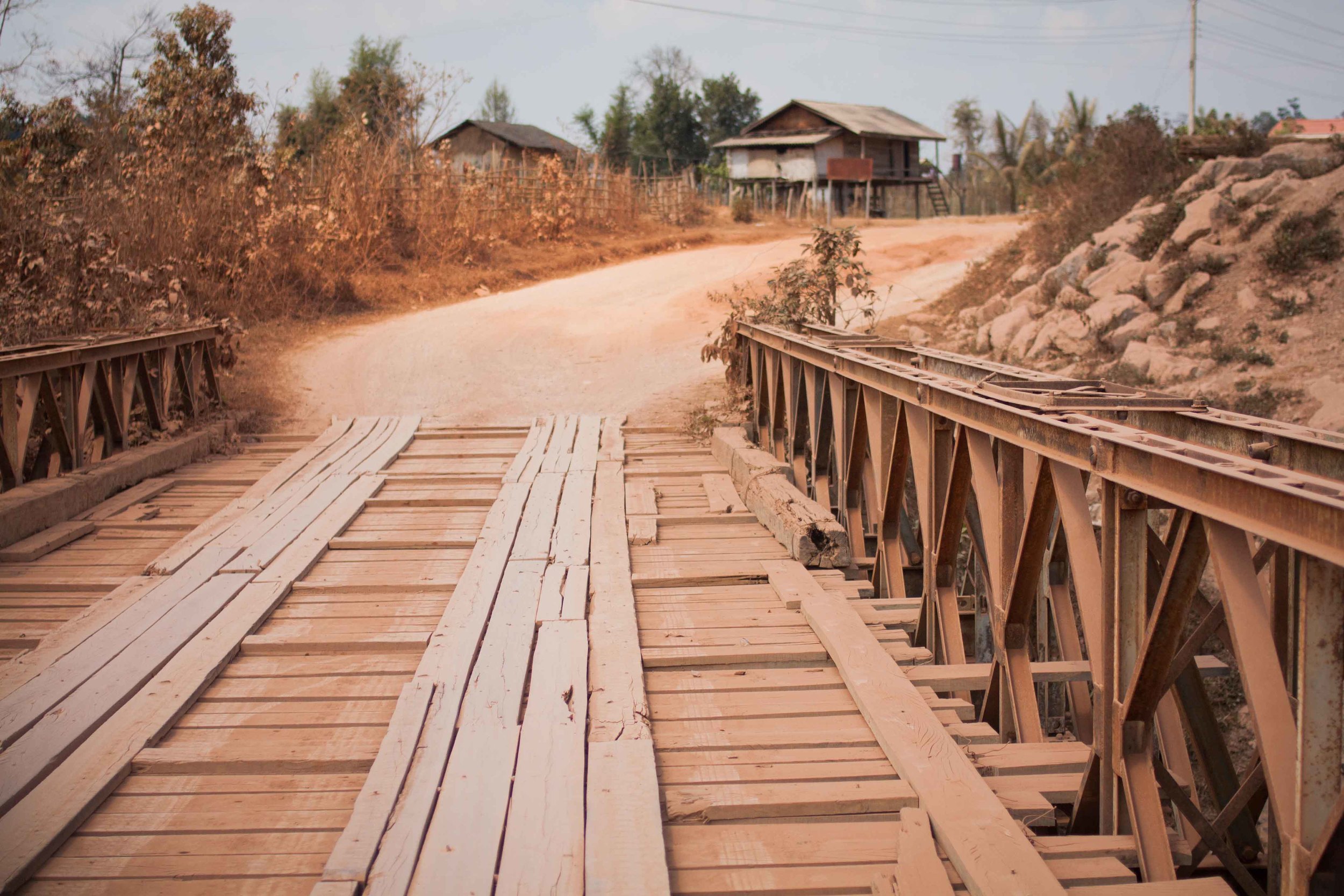
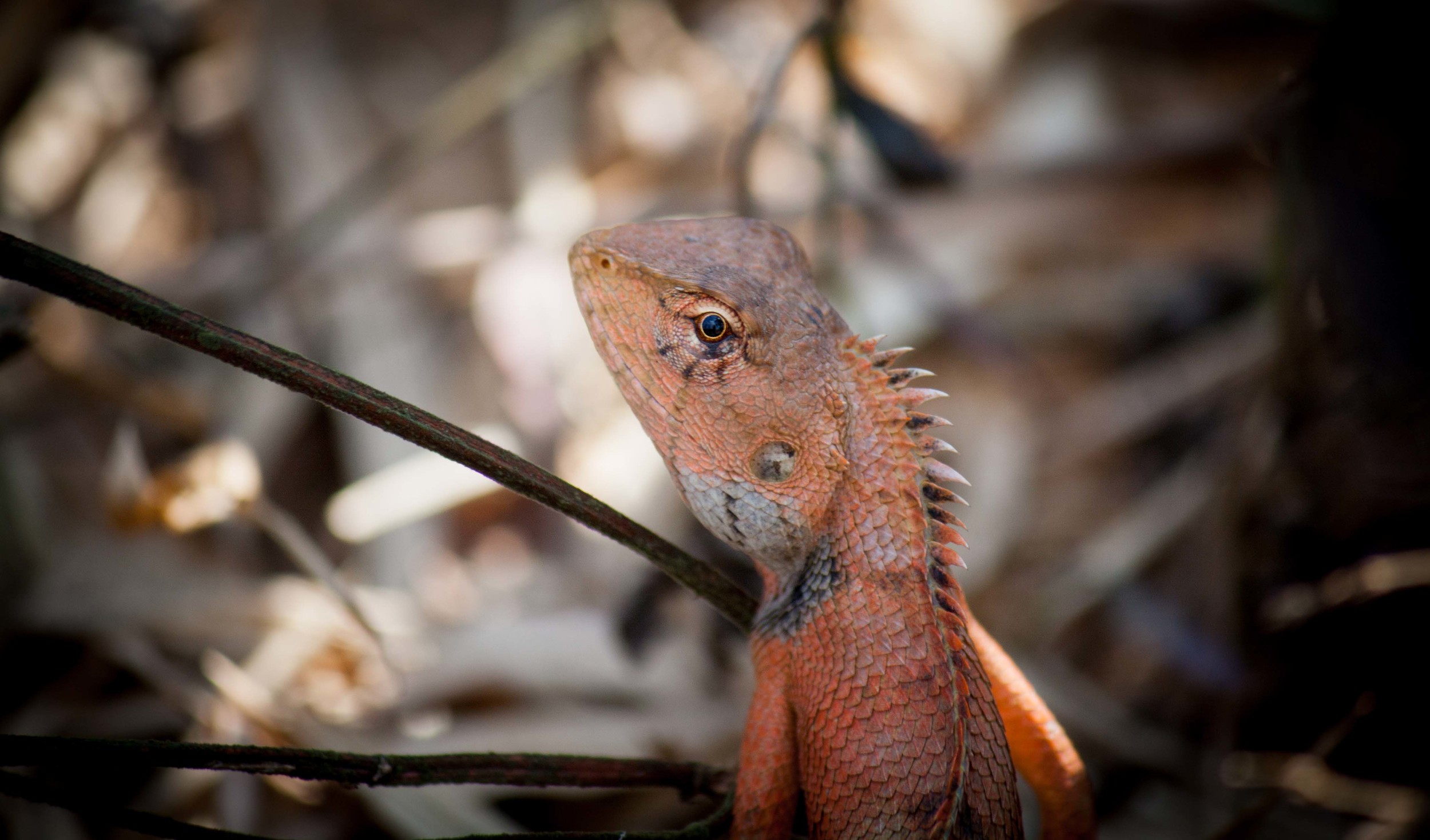
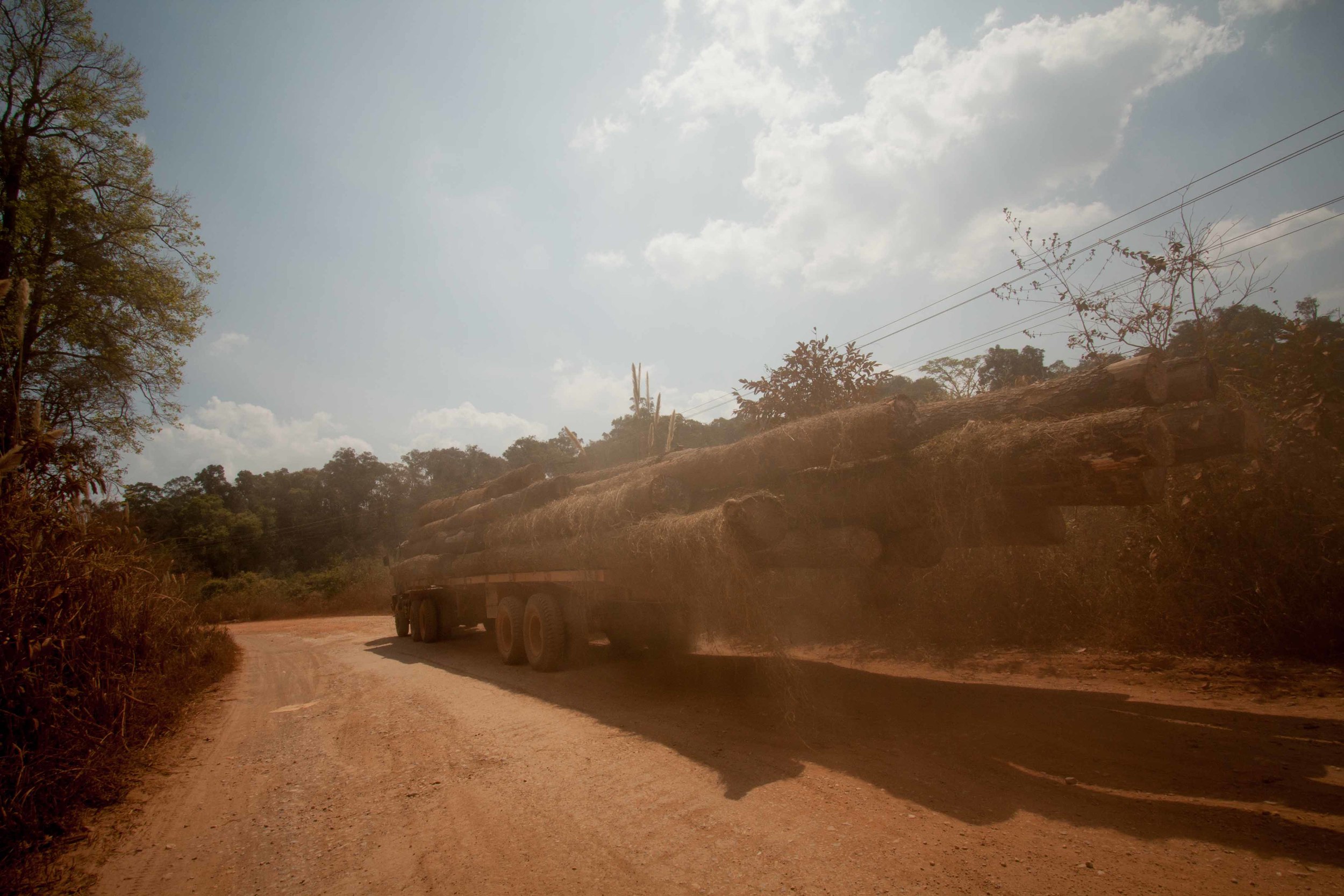
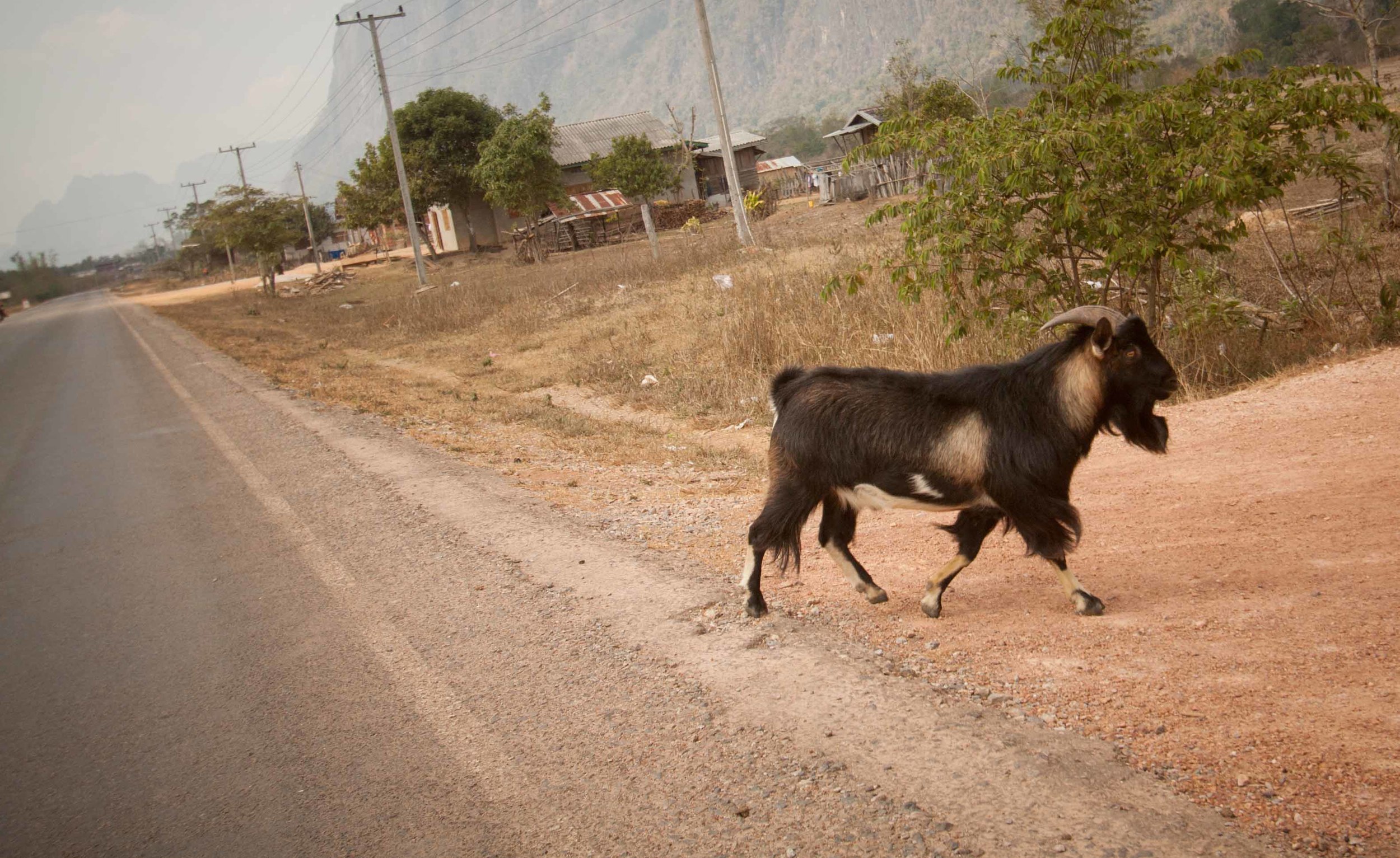
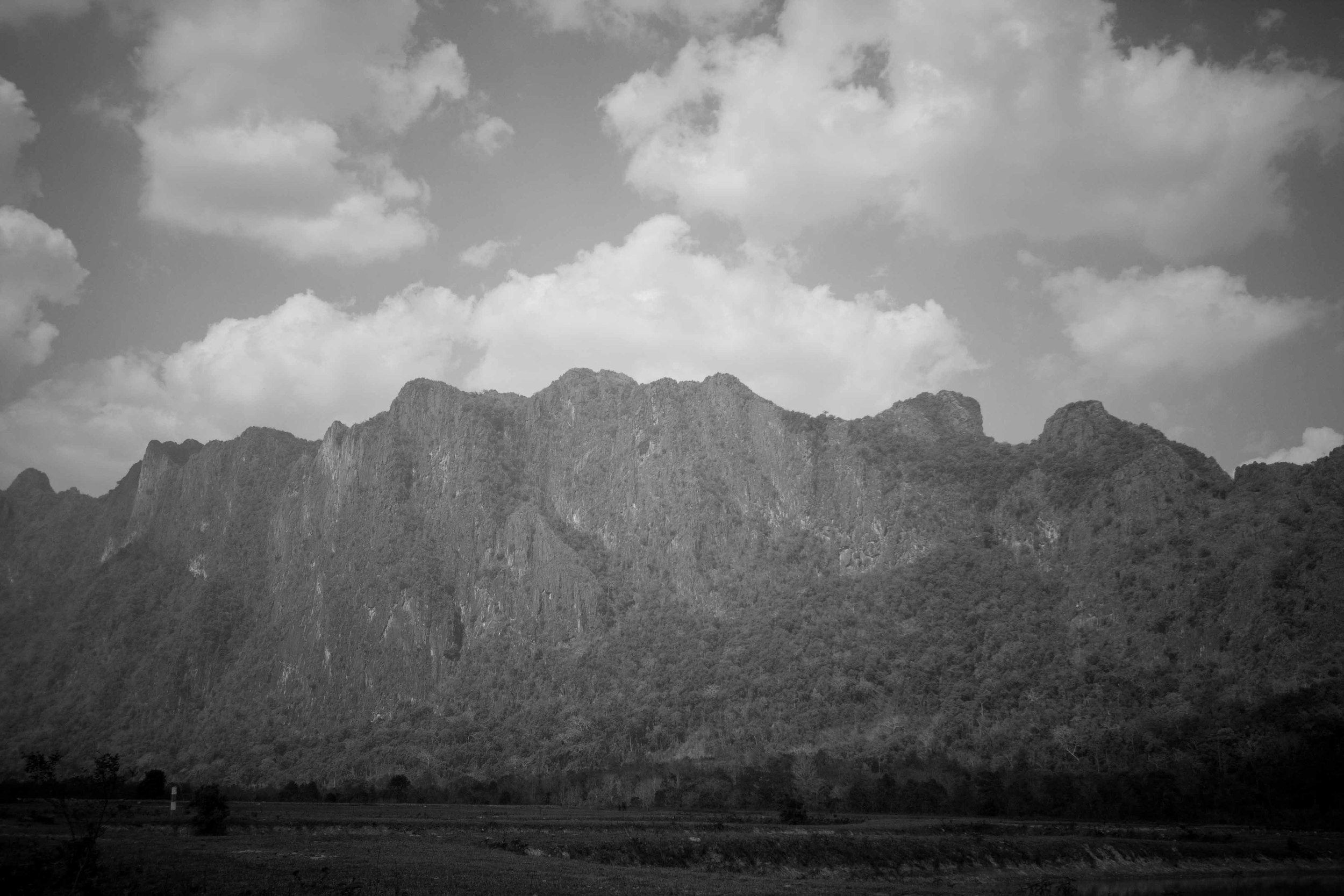
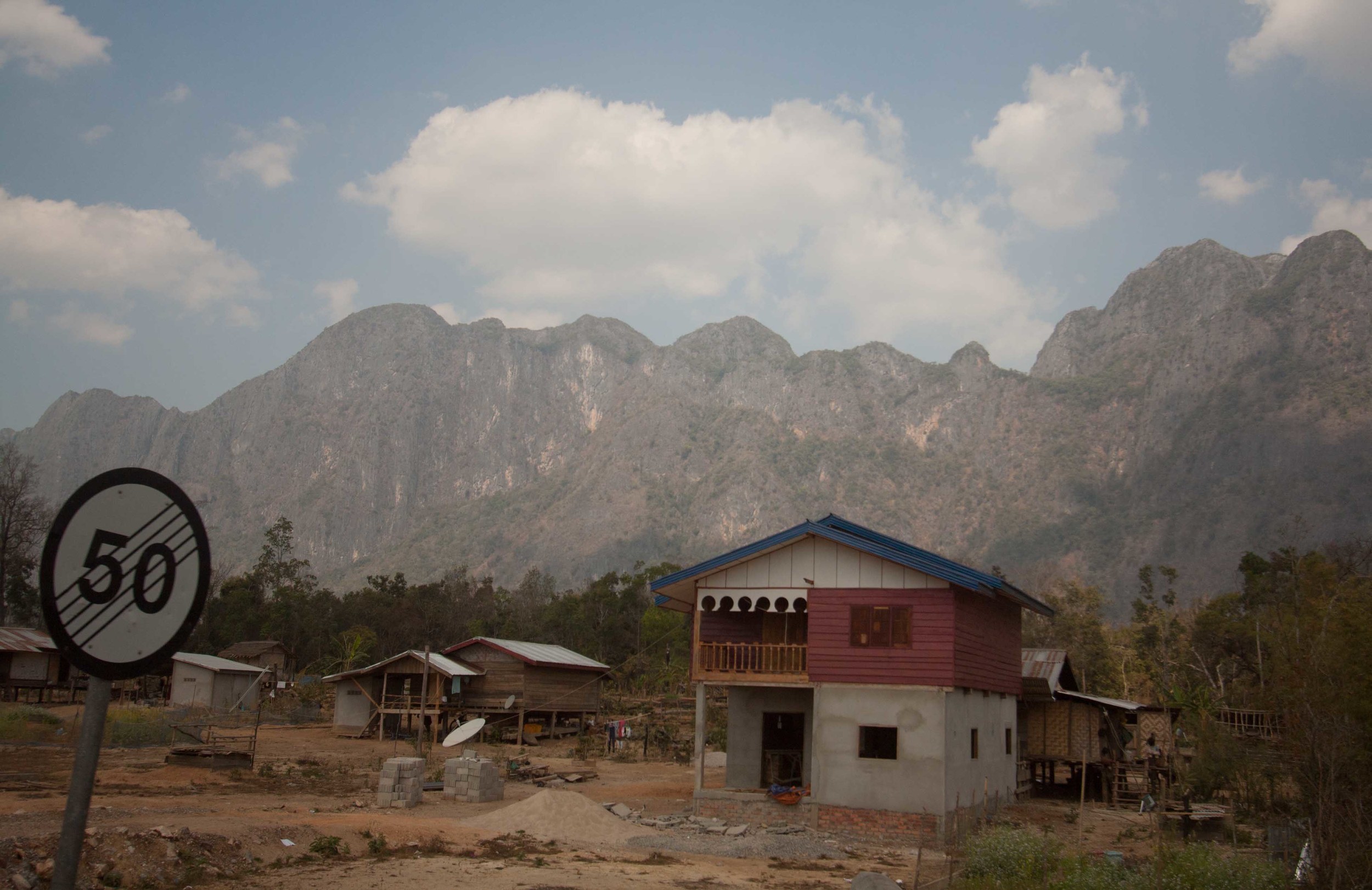
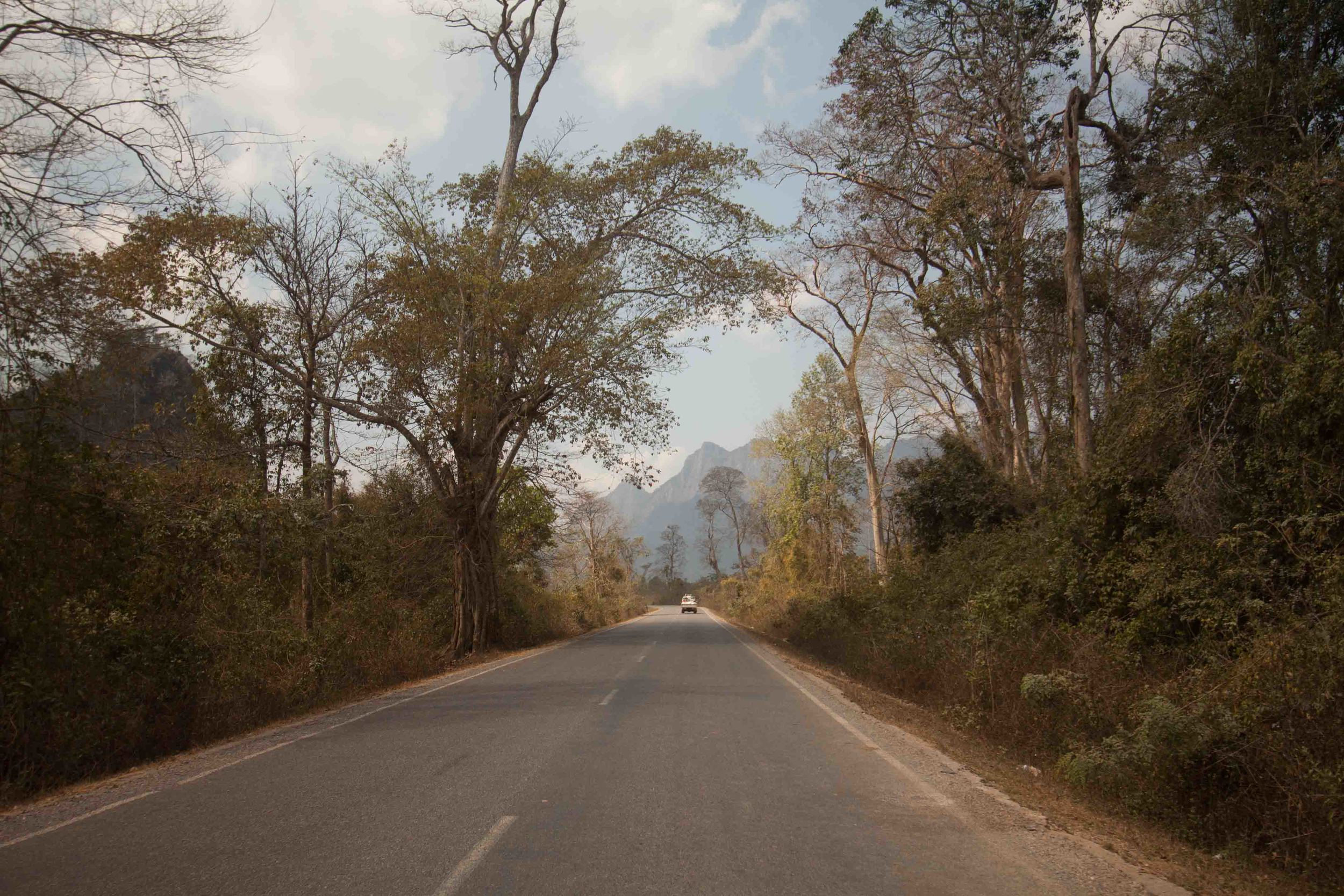
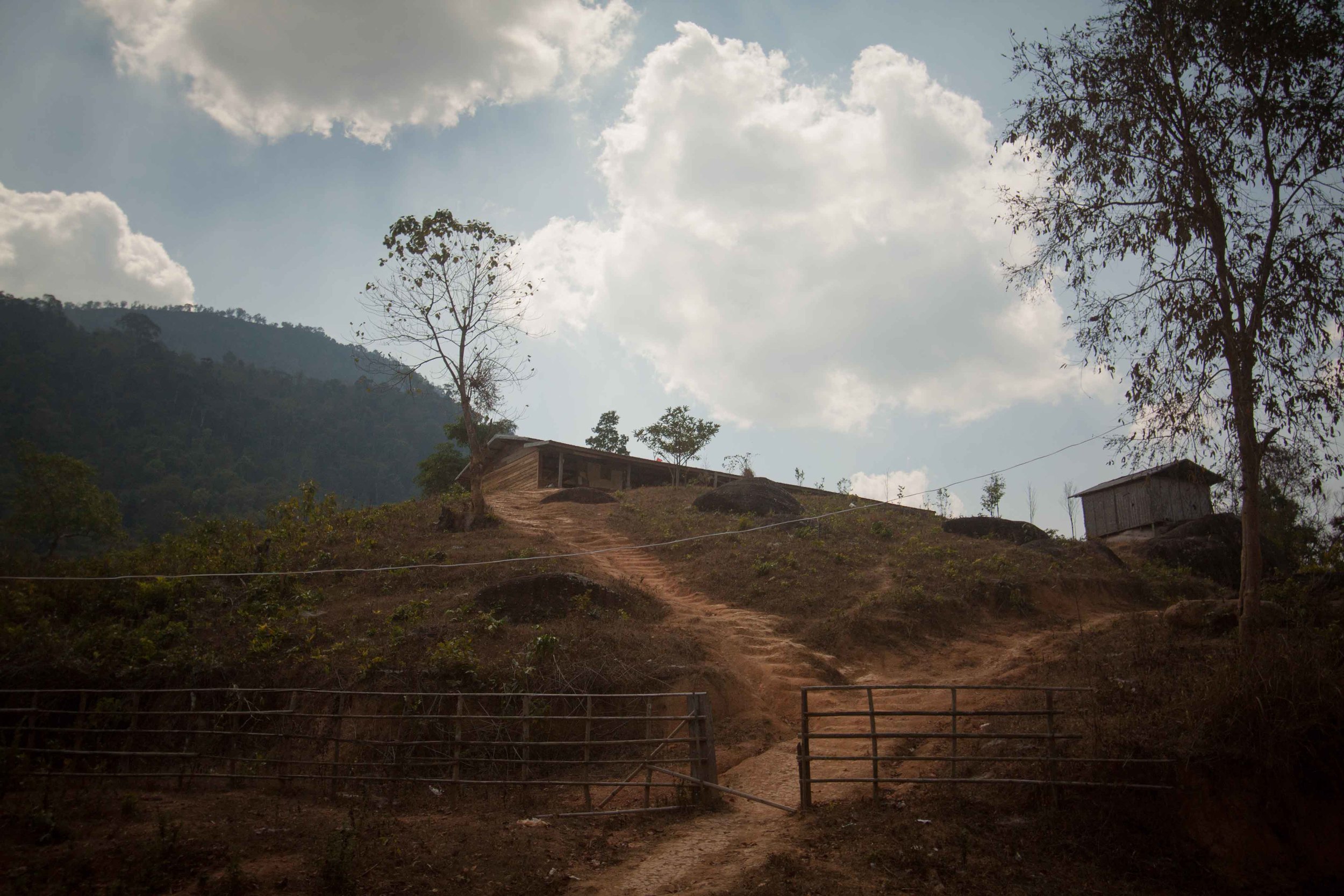
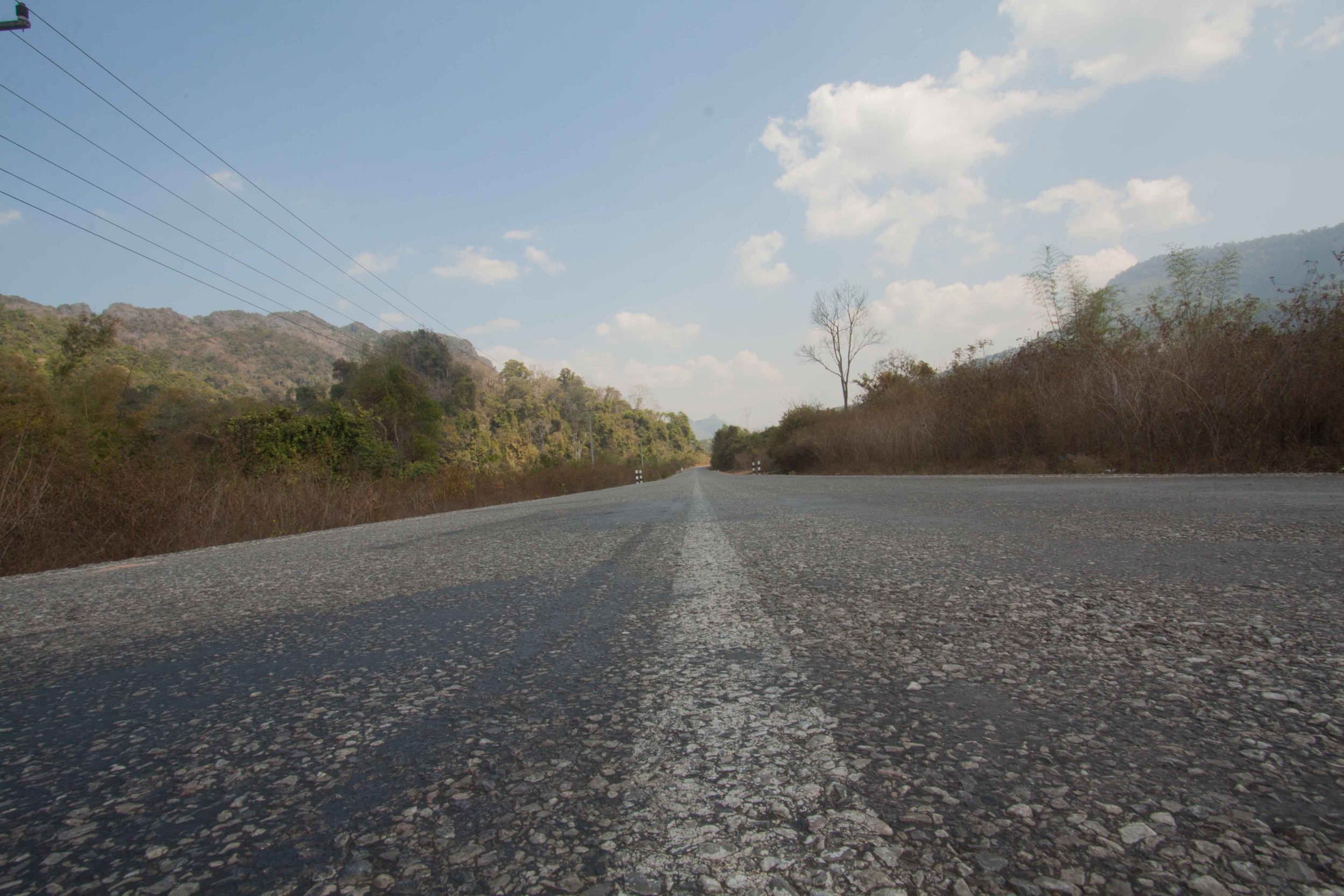
We come to a river crossing in the village of Tha Bak, famous for it's “bomb boats”. Although they look like they're made from empty bomb casings, they're actually empty fuel tanks dropped by the many bombers that flew missions over Lao during the Vietnam War.
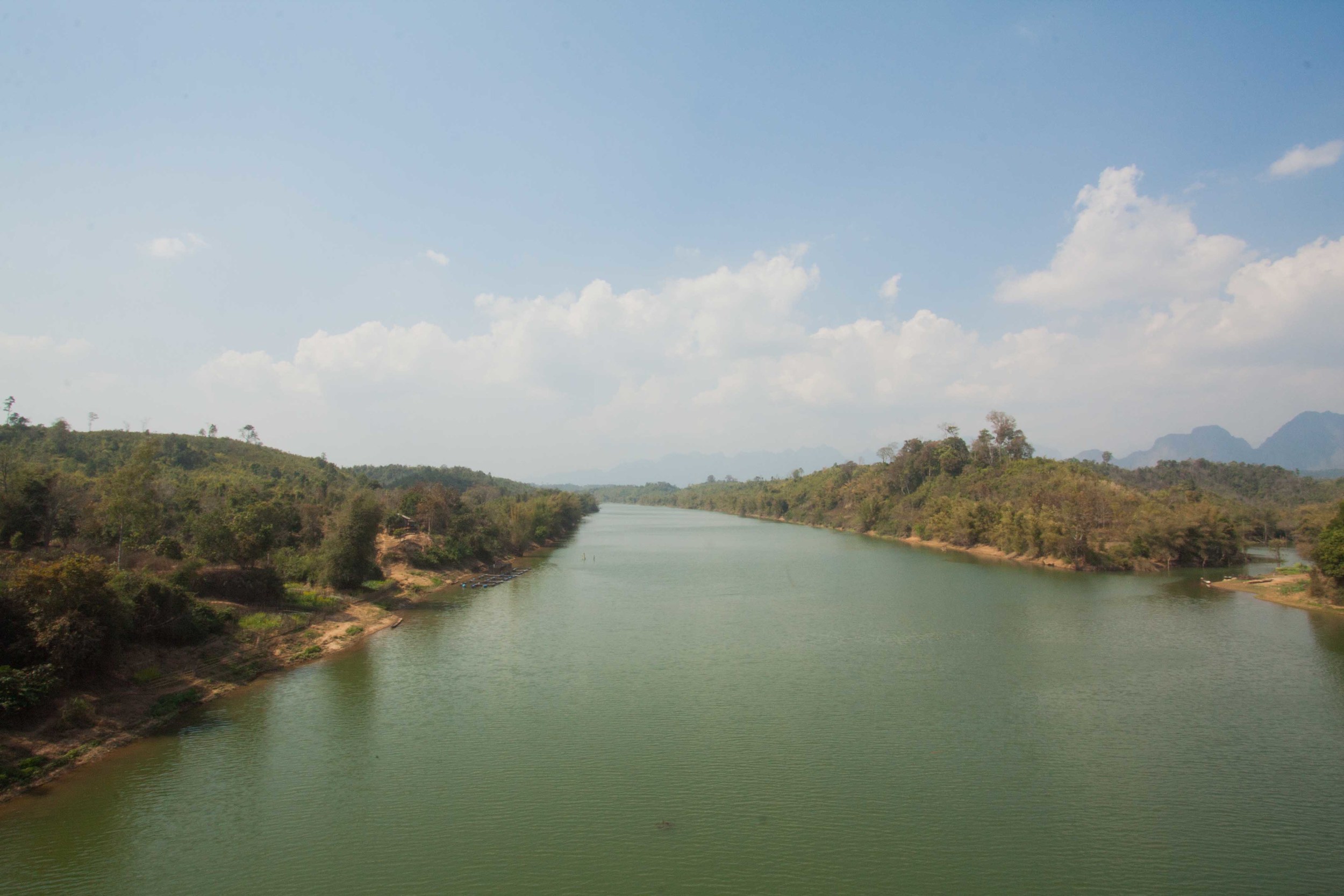
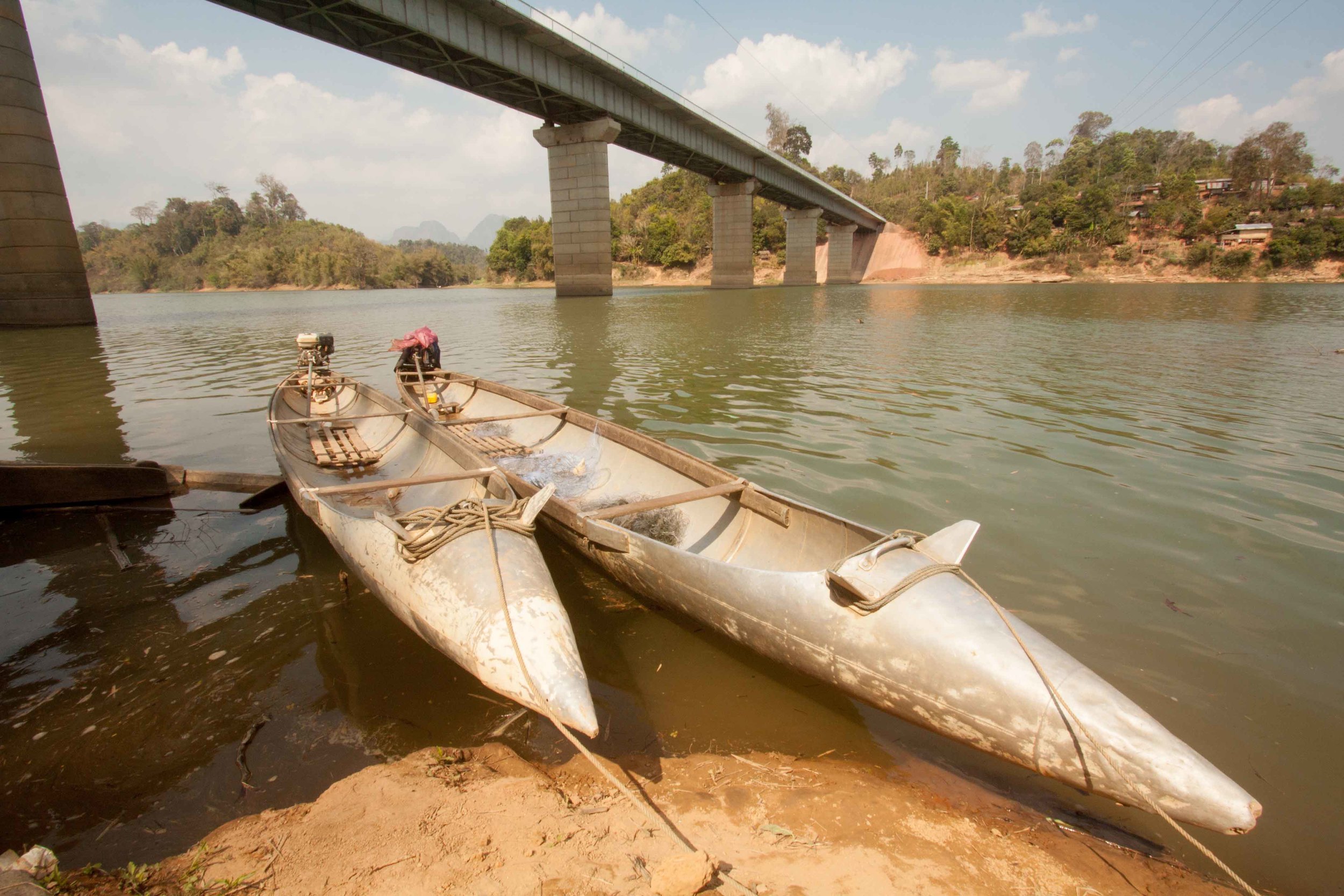
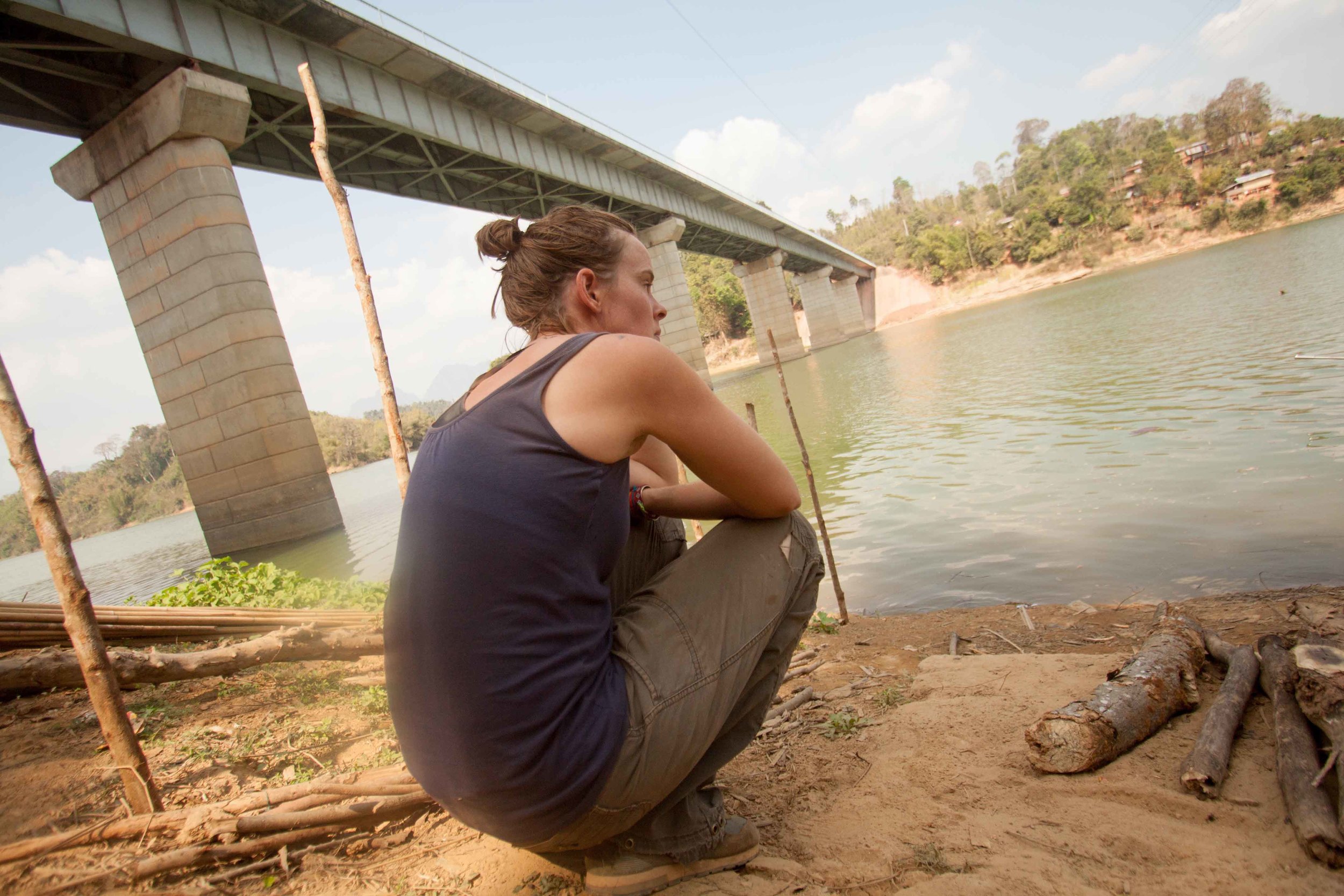
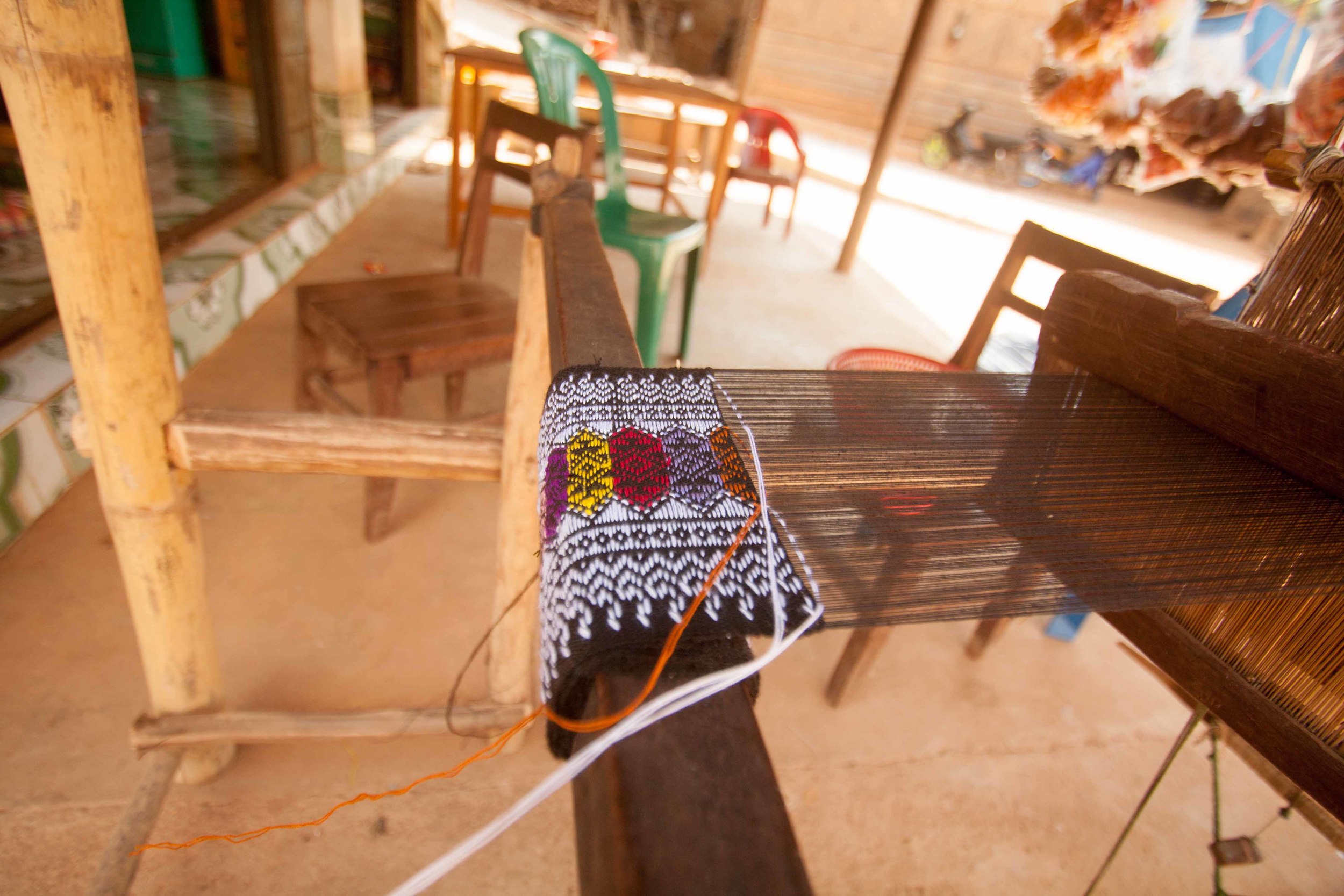
We arrive at the town of Khoun Kham, the jumping off point for the 7 Km long Konglor Cave. We find a guesthouse and get settled in. The owners are extremely hospitable and their young daughter, while shy, quickly takes a liking to us. Later on while we're hanging out in our room, we hear a knock on the door. I open it to find no one there, but at closer inspection, I see the shy girl hiding behind the door of the room across the hall. It seems she wants to come in but is afraid to ask, so I invite her in. She quickly becomes enamoured with our computer, and we show her some of the pictures from our trip through Lao. She points at various things on the screen and says the Lao word for them while we tell her what they are in English. Not surprisingly she catches on much easier than we do. Sometimes kids can make me feel quite stupid.
We give her some notebooks and pencils to share with her sister and she draws a picture of Natasha. It's a mystery how she knew that back at home Natasha wears triangle dresses with hearts on them and puts her hair in a side ponytail.
Later that night, I'm sitting outside with the owners, having a Beer Lao, and sharing some of the sticky rice that they've so generously offered. I ask him about the cave we plan on exploring the next day, and try to find out if he's got any friends or family that are guides. You see, pretty much everywhere that we've been in SE Asia, if there's an activity or attraction, everyone has a friend, or a cousin, or something that is willing to offer their services for a fee. Usually whoever sends tourists their way gets a commission or at least the pleasure of helping out a friend. The owner seems confused by my question and I try to explain that I like him and his family, and if I'm going to give my money to someone, I'd like it to be someone he knows. He still doesn't quite understand so he calls over a friend who speaks better English. I explain my intentions to him and he tells me that's not how they do things here. He tells me that the village has set up a committee to administer the cave. The guides are all put in a queue so everyone gets a fair turn to take tourists through. The guide keeps part of the fee and the rest goes back to village. This is one of the most refreshing things I've heard in months. The people of SE Asia are poor by almost any standards, and you can't blame them for jumping at any chance to get ahold of your tourist dollars. But it's nice to see a village come together to protect the natural wonder they've been blessed with, while still reaping the benefits, without the whole thing turning into a tout circus.


